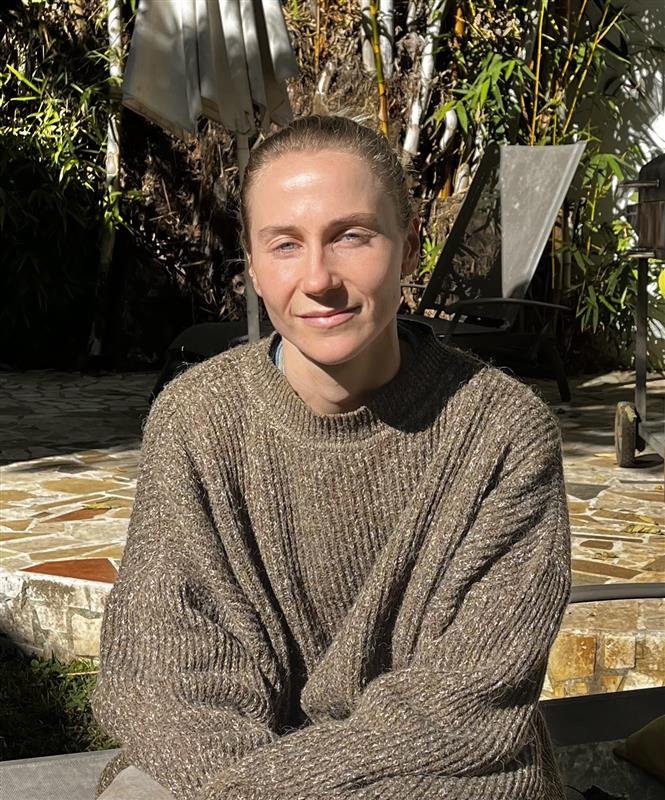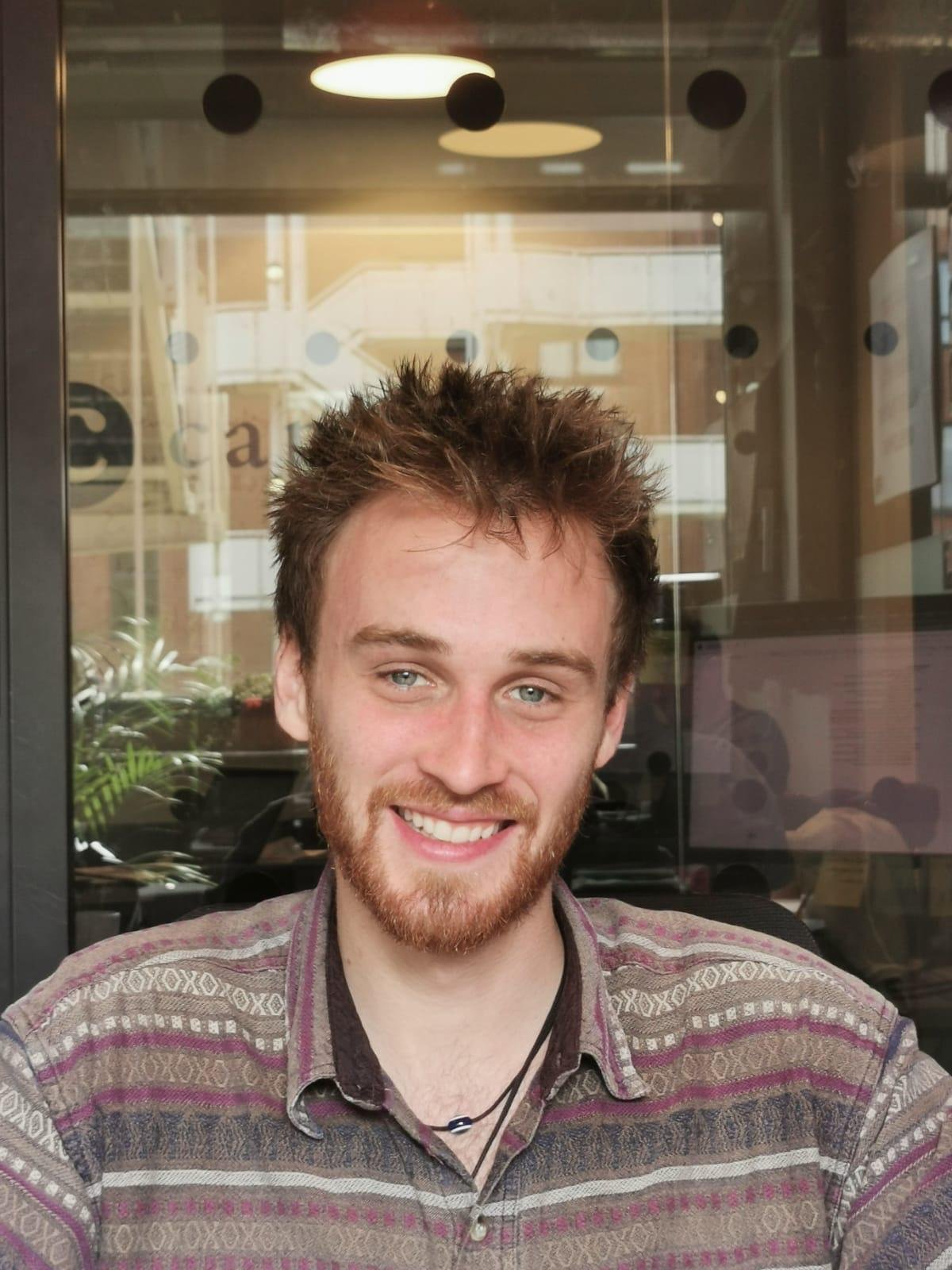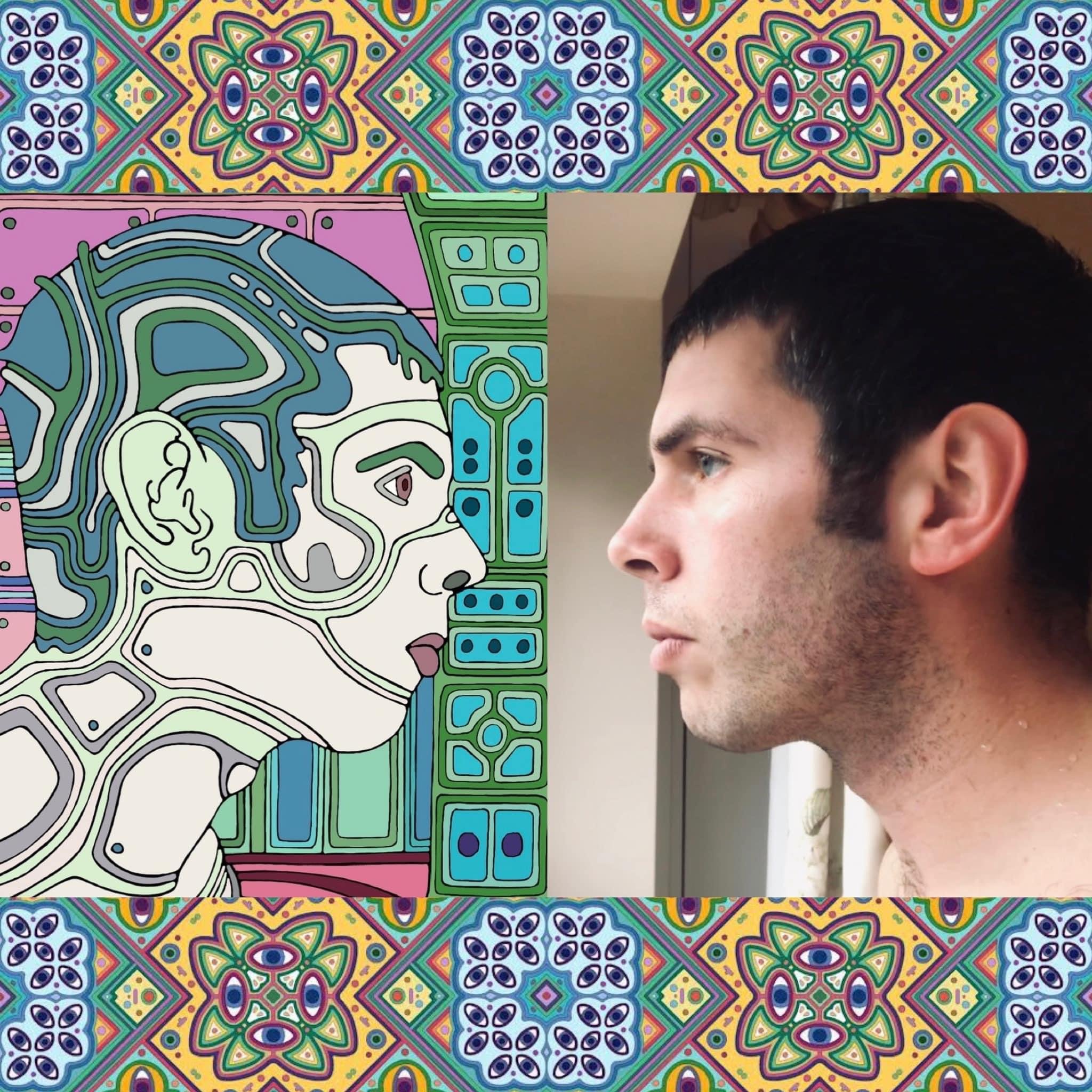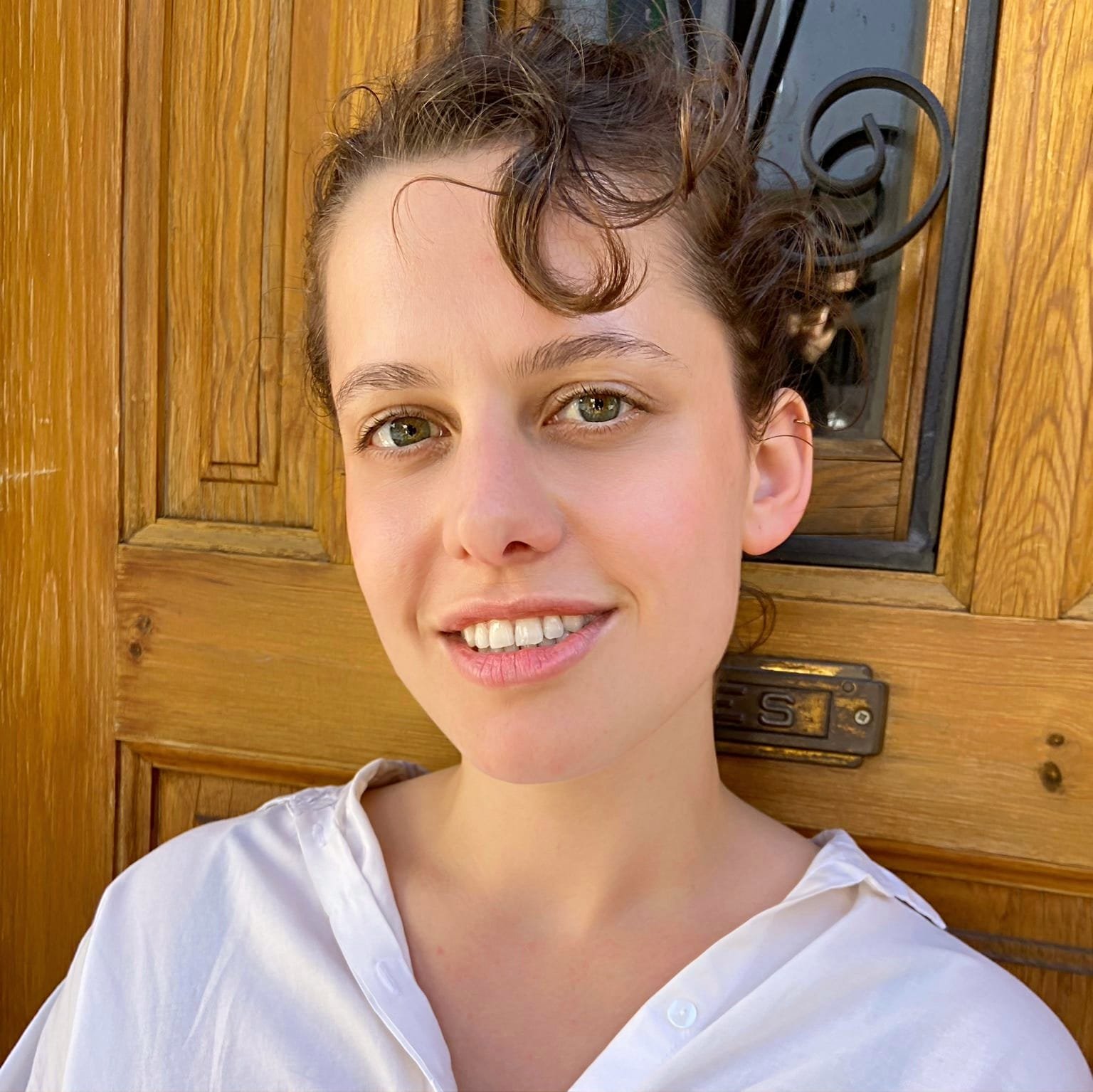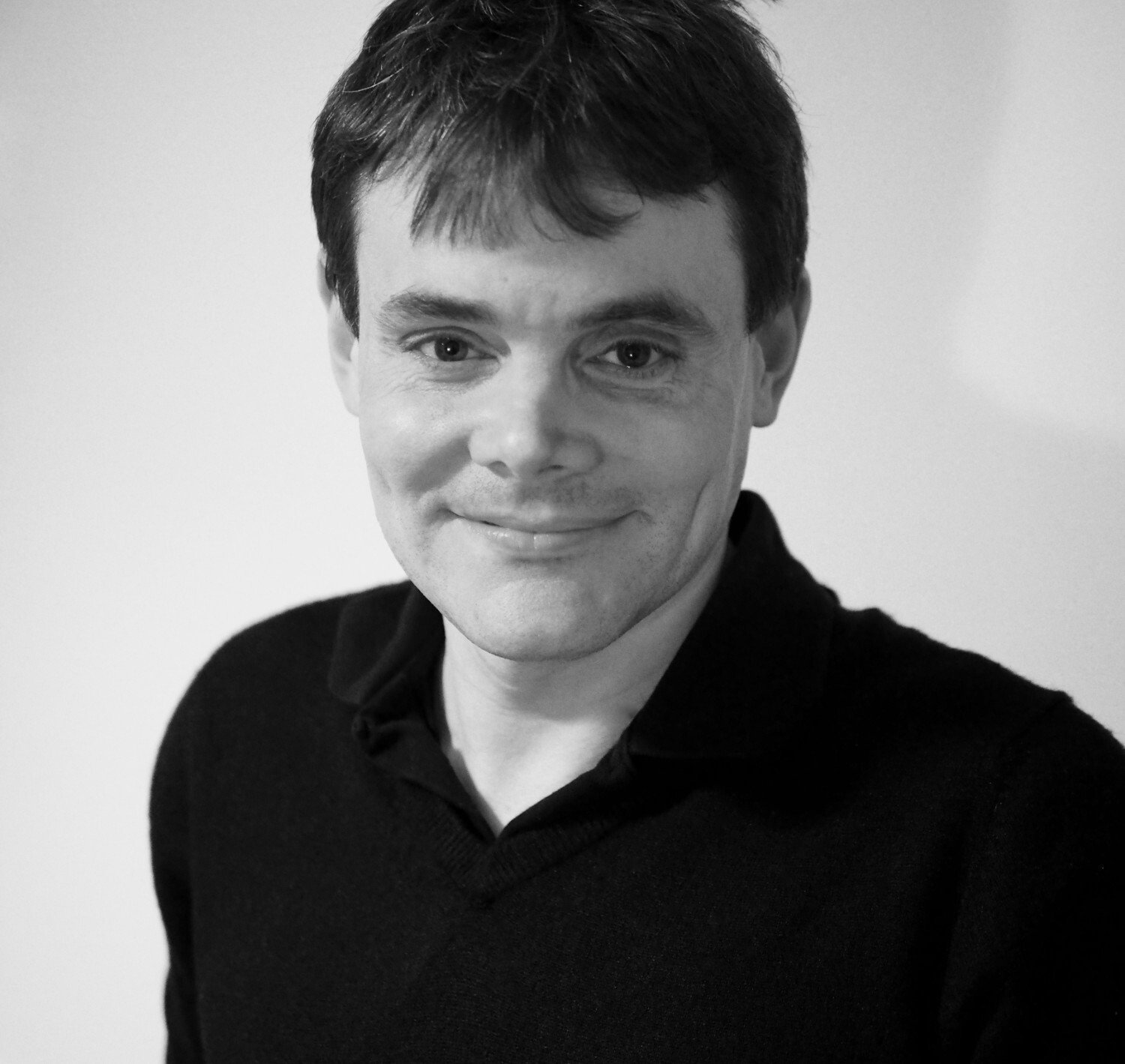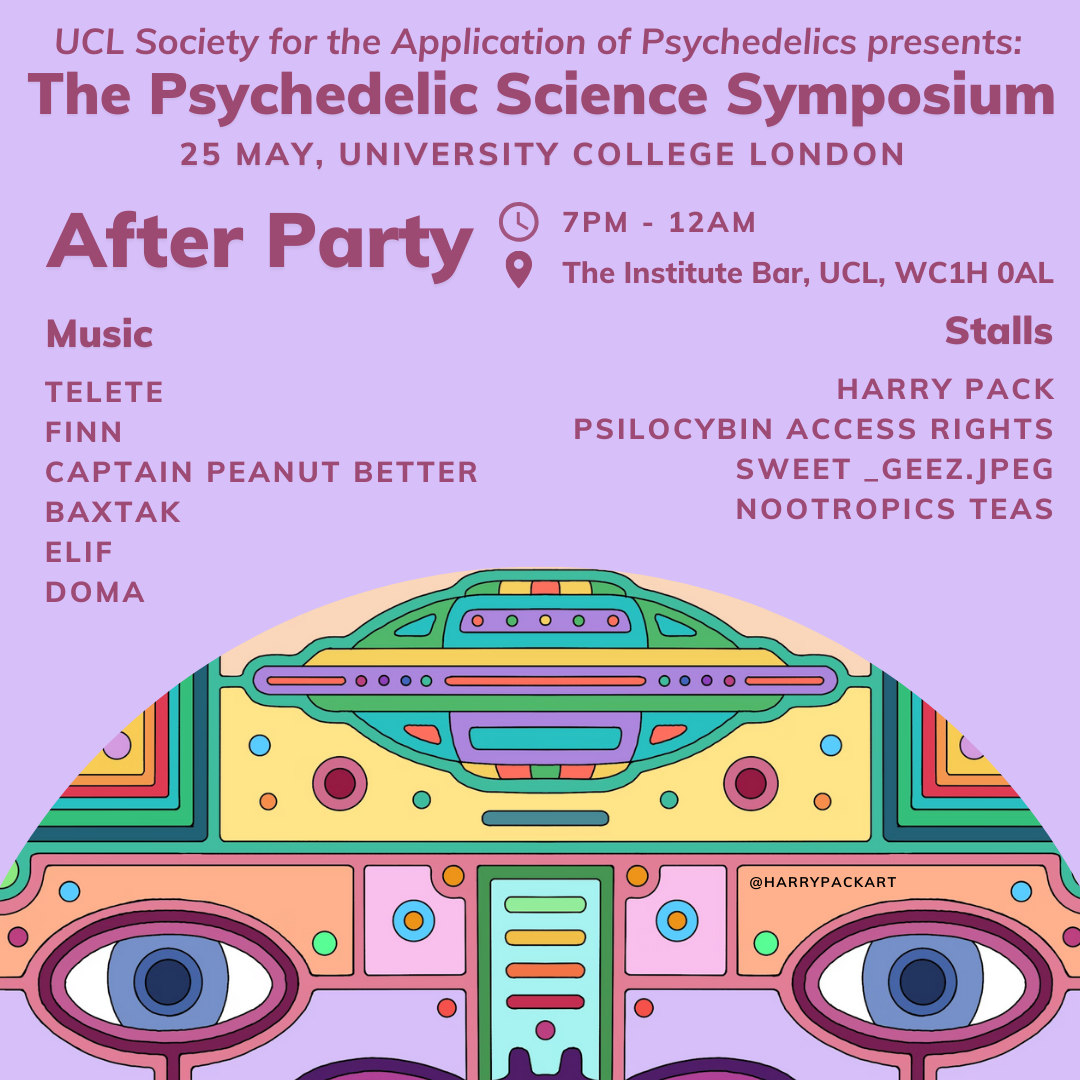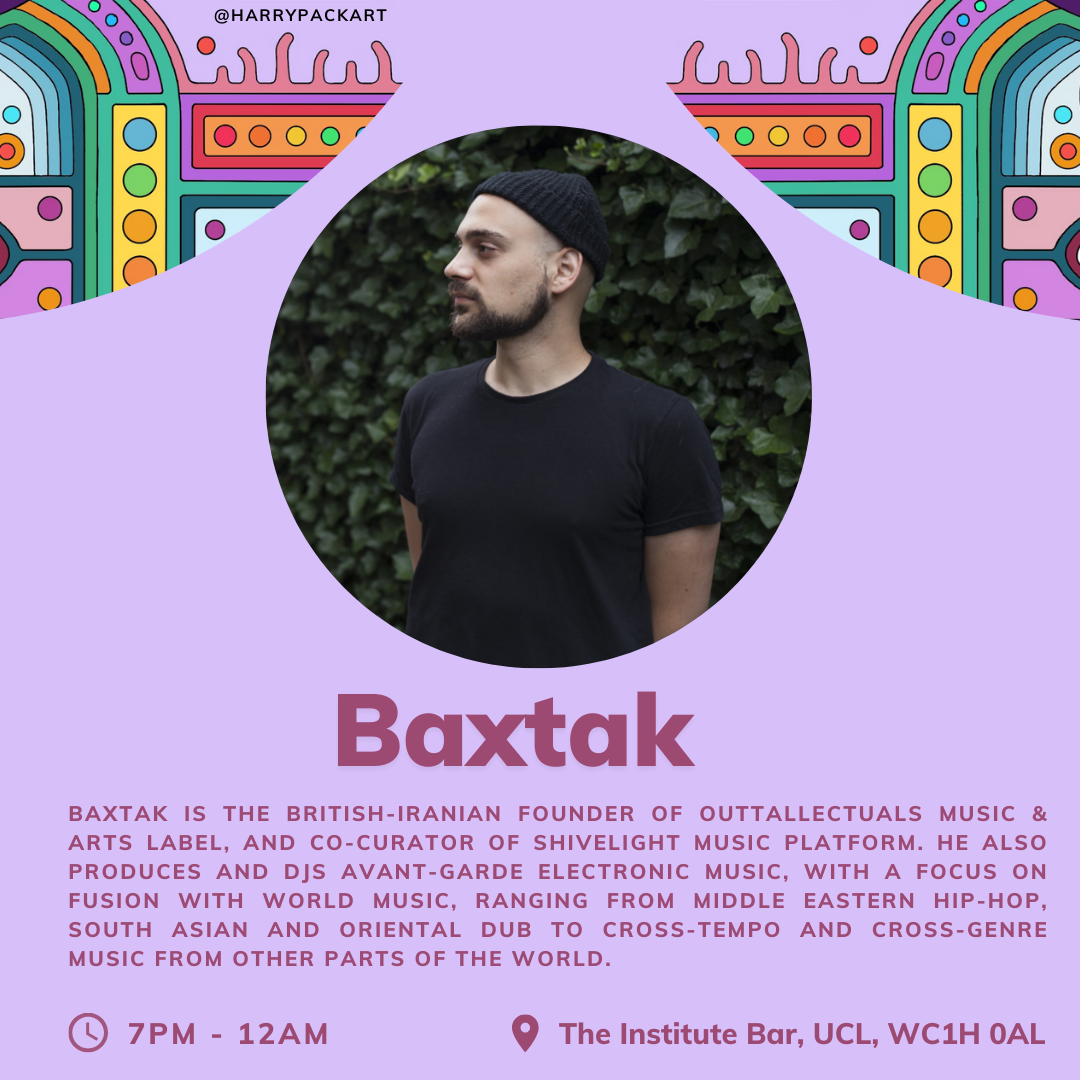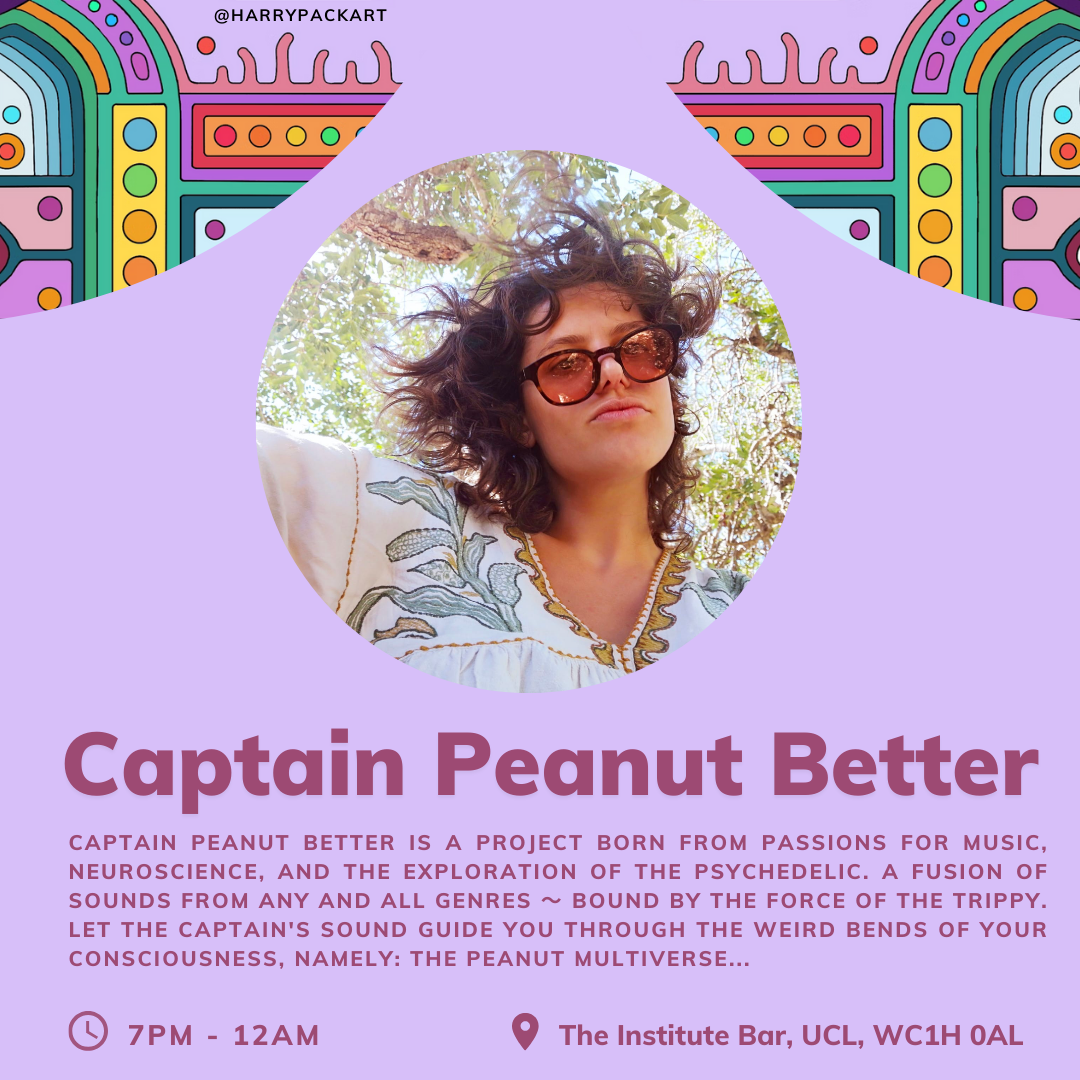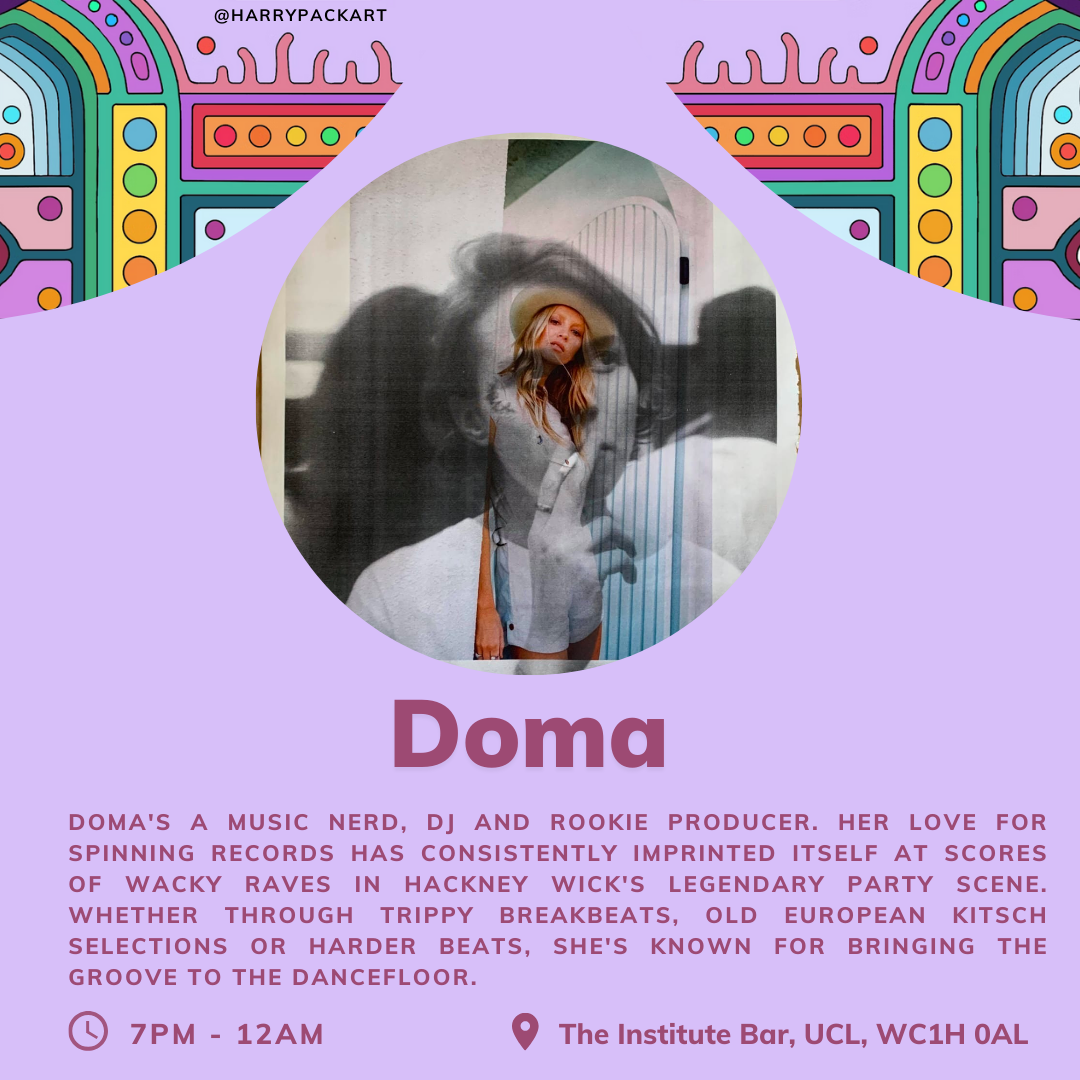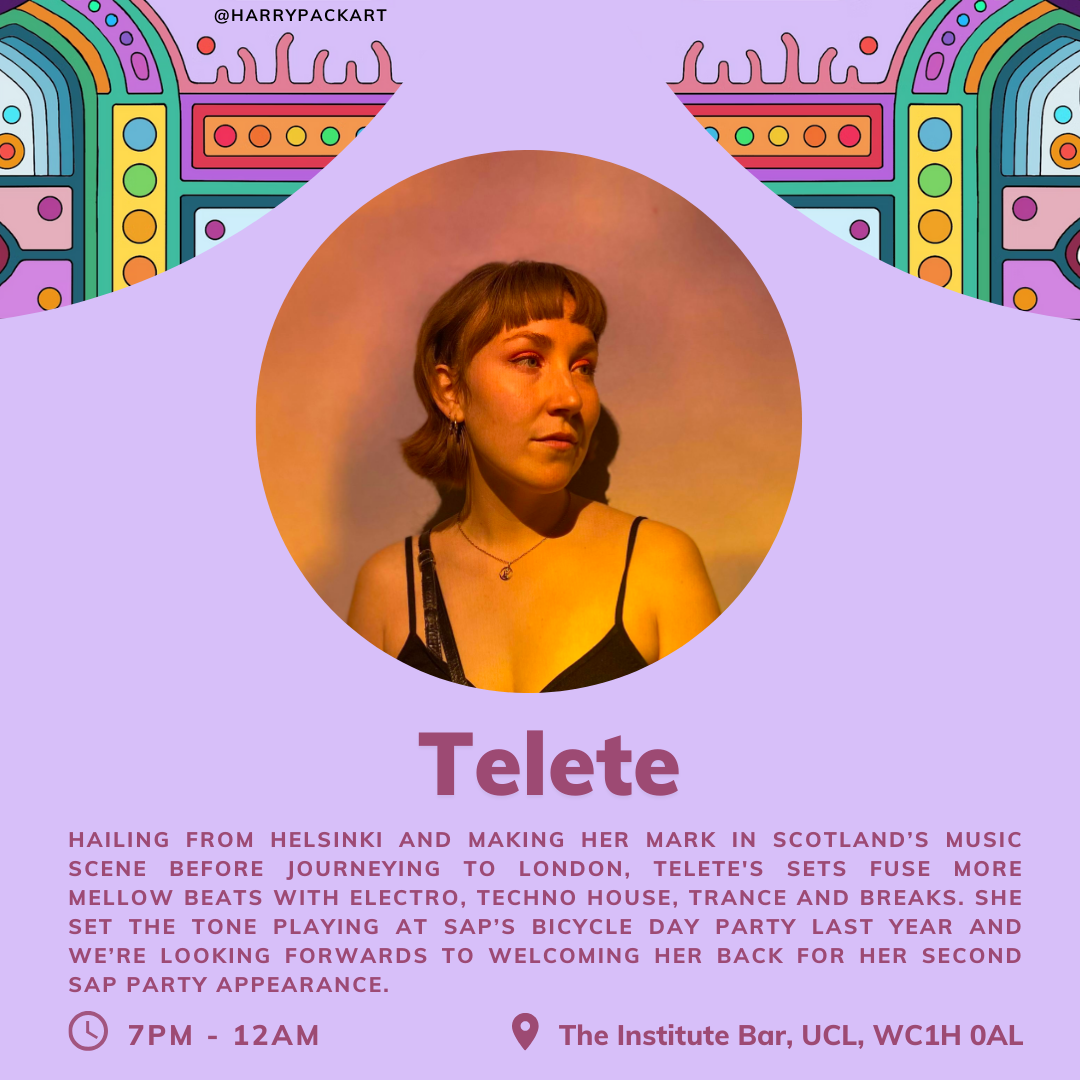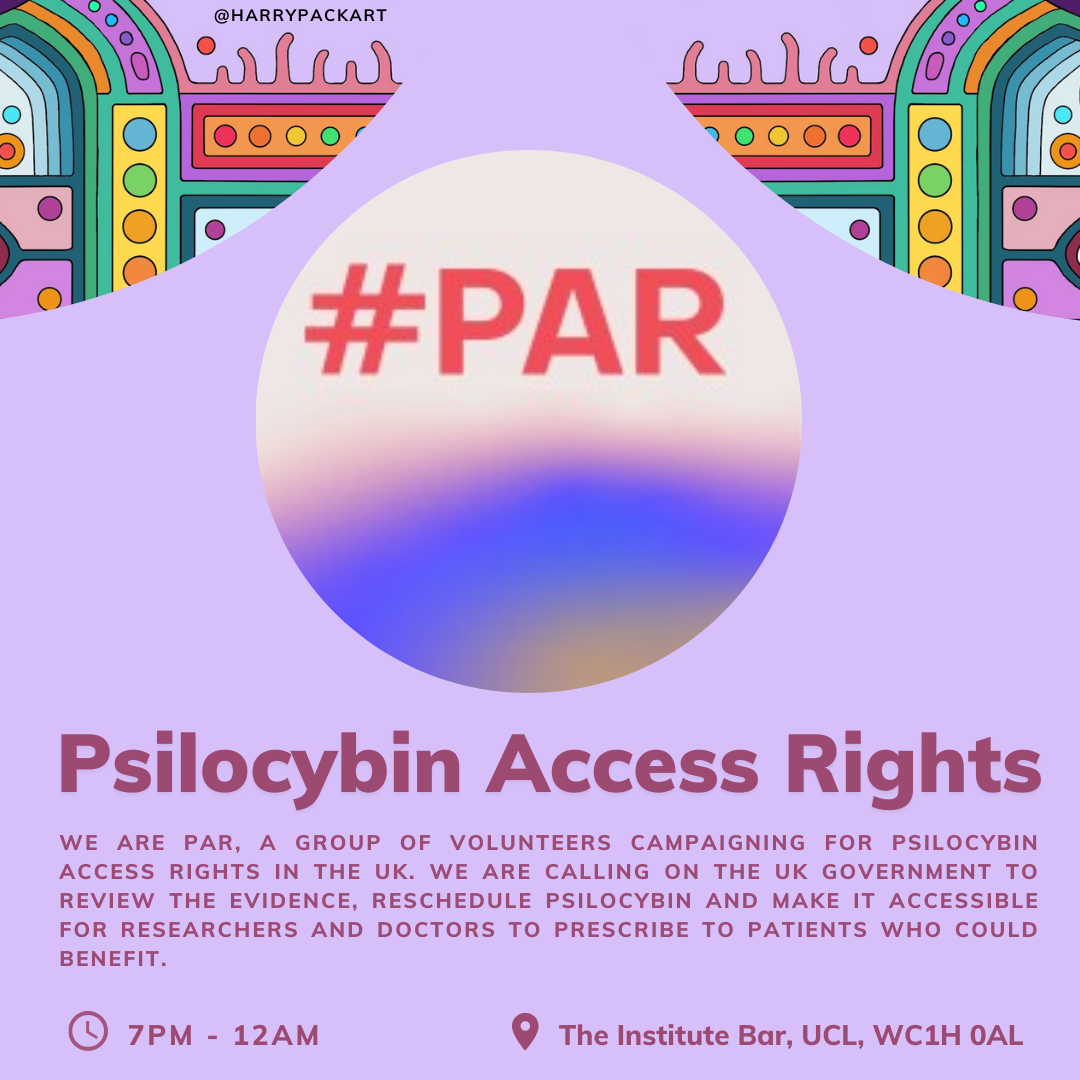Upcoming Events
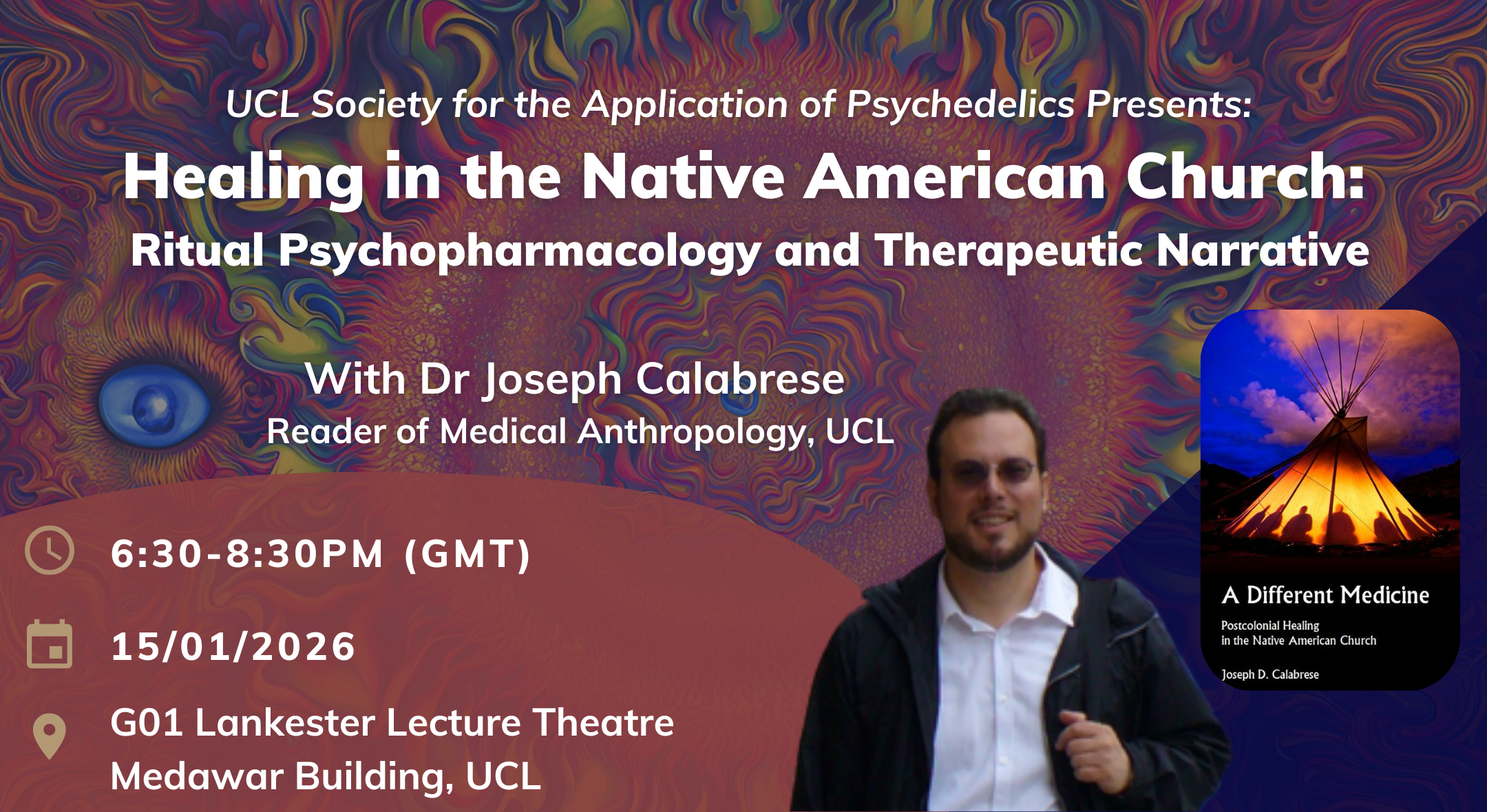
Healing in the Native American Church: Ritual Psychopharmacology and Therapeutic Narrative
Abstract:
This lecture will explore Joe Calabrese's clinical ethnographic research on the therapeutic use of the psychedelic Peyote cactus by Native Americans. Peyote is traditionally used in family/community contexts but Calabrese also observed its use as a component of clinical care for Native Americans during his year of volunteer clinical practice at a Navajo-run treatment facility. Peyote is framed by Native Americans as a sacred medicine and as an omniscient and morally evaluative guardian spirit. From a more scientific perspective, the psychopharmacological properties of Peyote produce self-reflective experiential states which are steered in positive directions by the structure of ritual symbolism, emphasizing a mythic language of transformative rebirth guided by the NAC worldview. Peyote experiences generate insight and therapeutic behavior change through a psychopharmacological approach that is experiential, aimed at higher-order mental processes and guided by cultural plot structures. Calabrese calls this a semiotic/reflexive paradigm of psychopharmacology which contrasts with the standard bio-reductionist agonist/antagonist paradigm.
Bio:
Joseph Calabrese is Reader of Medical Anthropology at UCL. A medical and psychological anthropologist and UK-registered clinical psychologist, he holds a PhD from the University of Chicago’s interdisciplinary Committee on Human Development, where he combined study of anthropology and developmental/clinical psychology. His anthropological monograph, A Different Medicine: Postcolonial Healing in the Native American Church explores a ritual-based postcolonial healing movement based on use of the psychedelic Peyote cactus and its incorporation into clinical programmes serving Native Americans (including one in which he treated patients for a year as a volunteer). He is currently studying mental illness and psychiatric care in the Kingdom of Bhutan.

The Psychedelic Science Symposium 2025
UCL Society for the Application of Psychedelics and King’s Psychedelic Research Society are hosting our second annual one-day symposium on the 31st May 2025.
For the cost of entry, you'll be treated to day of fascinating psychedelic science and knowledge from 8+ speakers! Join us to hear from a multidisciplinary lineup including both experts and students working in the field of psychedelic research - capped off with a drinks social just around the corner at The Vault bar, and a special afterparty at Brixton Jamm!
Event Details:
Ticket price: £5 for students, £10 for non-students (+ fees)
Registration: https://www.eventbrite.com/e/the-psychedelic-science-symposium-2025-tickets-1351837565549?aff=oddtdtcreator
Tickets get you access to everything: the conference, drinks social and the afterparty!
Conference:
Date: Saturday 31st of May
Time: 10am-7pm
Location: Edmond J. Safra Lecture Theatre, Strand Campus, Strand, London, WC2R 2LS
Drinks social:
Date: Saturday 31st of May
Time: 7pm-10pm
Location: The Vault, Bush House, South East Wing, Floor -1
Afterparty:
Date: Saturday 31st of May
Time: 10:30pm-4am
Location: Brixton Jamm, 261 Brixton Rd, London SW9 6LH
Speaker Lineup:
Short talks:
-
Bio:
Alex is a PhD student on the UCL Wellcome PhD in Mental Health Science programme and Director of Research at the Centre for Evidence-Based Drug Policy. For the past three years in his role at the Centre he has been actively advocating for more effective and equitable drug policy. His work at the Centre focuses on reducing the harms associated with prohibition and strengthening drug policy governance in the UK.
Abstract:
This talk will delve into the evolving landscape of drug policy with a focus on developments in psychedelic legislation. We will explore the UK’s current regulatory frameworks, examine how groundbreaking clinical trials involving substances like psilocybin and MDMA are influencing putative legislative changes. The presentation will address the significant challenges in balancing political expediency, public interests and scientific findings in a rapidly evolving field, highlighting the regulatory hurdles that impede the transition from research to therapeutic application. Furthermore, we will discuss the critical pathway of translating scientific evidence into effective drug policy, advocating for a foundation built on rigorous, data-driven methodologies. Lastly, predictions about future trends in psychedelic policy will be offered, underscoring the necessity for a multidisciplinary approach that includes cooperation among scientists, policymakers, and community advocates to foster an environment where policy innovation aligns with public health and scientific integrity. -
Bio:
Tommaso Barba is a PhD candidate at the Centre for Psychedelic Research, Imperial College London, supervised by Dr. David Erritzoe, Prof. David Nutt, Dr. Chris Timmermann, and Dr. Kate Godfrey. With a background in neuroscience and psychoanalysis, he graduated cum laude from Maastricht University with a Master of Research in Cognitive and Clinical Neuroscience. Since September 2020, Tommaso has been with the Centre for Psychedelic Research, initially as a research assistant and now as a PhD scholar, focusing on neuropsychopharmacological and basic science projects.
Tommaso's research centers on the brain effects of short-acting psychedelics such as DMT and 5-MeO-DMT, currently conducting the first neuroimaging trials of these compound in laboratory settings with Dr Timmermann. He also explores the potential role of psychedelics in treating depression and enhancing well-being. Tommaso has published over ten scientific papers, including five as the first author, in journals such as The Lancet EClinical Medicine and Nature Scientific Reports. Tommaso’s work has been widely recognised and covered by prominent media outlets, including Forbes USA, The Times, The Telegraph, Rolling Stone, and CNN.
Tommaso has received prestigious awards, including the Public Engagement Prize from Imperial College London, the Poster Award from the European College of Neuropsychopharmacology (ECNP), and the British Journal of Psychiatry Award for his study "Effects of psilocybin versus escitalopram on rumination and thought suppression in depression."
His interests also include the impact of psychedelics and MDMA on couples' intimacy, advocating for their potential in improving couples' connection within therapeutic settings. Additionally, Tommaso collaborates with universities and startups in Italy and the USA.
Abstract:
This talk delves into the cutting-edge pharmacological and neuroscientific research comparing psilocybin, a naturally occurring psychedelic compound, with classic antidepressants in the treatment of depression. It will explore the distinct mechanisms of action, their brain effects based on recent neuroimaging data, and long-term outcomes of these two therapeutic approaches. By examining recent clinical trial data and advancements in neuroimaging, the session will provide insights into how psilocybin may address depression compared to classical treatments. Key ethical considerations and the evolving regulatory landscape will also be discussed, situating this research in the broader context of mental health innovation.
-
Bio:
Orla is a cognitive neuroscientist at the Centre for Psychedelic Research, Imperial College London, where she is a recipient of the President’s PhD Scholarship. She leads the neuroimaging arm of the PsilOpioid trial, which is the UK’s first clinical trial integrating psychedelics into the treatment of opioid dependence. Her research explores how psilocybin may reshape addiction circuitry in the brain and whether enhancing our sense of social connection—what she calls "social reward"—might be a key ingredient in lasting recovery.
She has also spent the past two years deep in the woods of microdosing research - trying to untangle whether consistent therapeutic patterns emerge and how we might meaningfully study a practice that evolved outside the boundaries of conventional medicine. For her, the real work lies in bridging rigorous science with the lived realities and complexities of human experience.
Abstract:
Microdosing is everywhere—on podcasts, in group chats, and at the fringes of mental health conversations. This self-medicating practice has garnered a large community of followers who report a broad range of health benefits including improvements in mood, pain relief, and concentration. However, despite the buzz, the science behind the practice is… well, a little underwhelming.
So, what’s the full story of microdosing?
During this talk, we’ll take a visual stroll through the entire body of scientific evidence on psychedelic microdosing—exploring the topic from two sides: what the research tells us, and what people continue to report in the wild. Along the way, we’ll ask whether these effects could be explained by placebo, whether our current tools are sensitive enough to detect what’s really happening, and what it might take to properly evaluate the subtle—and often slippery—potential of this much-loved wellness ritual. Designed to provoke further conversations, we’ll be sitting with the questions of what microdosing is, what it isn’t, and what it might one day be.
-
Bio:
Dr. Zulfiqar Khan is a leading expert in psychedelic and consciousness research, internationally recognised for his work on the safe and effective use of compounds such as psilocybin, DMT, and LSD.
In collaboration with experts based in the United States, he is involved with developing personalised, science-driven treatments for psychiatric and behavioural disorders, including PTSD, mood, and substance use conditions.
Dr. Khan’s research demonstrates that, under carefully controlled clinical conditions, psychedelics can temporarily alter brain function to provide relief from emotional and psychological distress. His work also explores the benefits of psychedelics in healthy individuals, aiming to enhance mental well-being, creativity, and human potential.
Through his pioneering efforts, Dr. Khan is not only advancing the future of mental health care but also working to break the stigma surrounding the therapeutic use of psychedelics.
Abstract:
Dr. Khan’s talk will explore the clinical application of psychedelics, particularly Psilocybin and DMT, with a strong emphasis on ethical frameworks, patient safety, regulatory challenges, and emerging clinical outcomes.
He will also highlight his current work with trauma-affected populations, including Ukrainian veterans facing PTSD and depression.
Long Talks:
-
Bio:
Leor Roseman is a Senior Lecturer and Psychedelic researcher at the University of Exeter. He has previously worked at the Centre for Psychedelic Research, Imperial College London, under the mentorship of Prof. Robin Carhart-Harris and Prof. David Nutt, supporting the foundational work of a remerging research field. His interdisciplinary research covers neuroscience, psychology, phenomenology, anthropology and conflict resolution, using various research methods such as fMRI, quantitative, qualitative, microphenomenology, ethnographic, and participatory research. Leor co-developed and teaches the new Master’s degree – Psychedelics: Mind, Medicine and Culture. Also, Leor co-founded Ripples – a non-profit dedicated to peacebuilding supported by psychedelics.
Abstract:
In the spring of 2022, three groups of Palestinians and Israelis were invited to participate in an ayahuasca peacebuilding program. The invitation was to explore the ceremonial and healing space of ayahuasca through a collective intention: to ground the transformative spiritual practice in the political reality of conflict and oppression; to heal collective trauma and liberate from rigid narratives and ethos; to invite revelations and transform them into actions of co-resistance; to create a community of solidarity and care; and to celebrate life and good music together.
In this lecture performance, Leor will share results, stories, revelations, reflections, and updates from this unique program.
-
Bio:
Anjali Bhat is a Research Fellow in computational and cognitive neuroscience at King’s College London. Her research bridges in vivo, in vitro and in silico techniques to explore the effects of psychedelics on the brain and the aetiology of psychosis. Some of her other areas of research include synthetic biological intelligence, neuroimmunology, and psychotherapy.
Abstract:
This talk will overview the nuances of trying to understand the profound changes in subjective experience under psychedelics and what happens to the brain during these experiences. I will overview the development of a new project to map – in more detail than ever before – the neural correlates of the subjective experience under LSD. This new study leverages recent developments in precision neuroimaging to explore the effects of LSD on information processing in the brain, and uses a novel approach to probe the arc of the experience as it unfolds over its entire ten-hour duration.
-
Description text goes here
-
Bio:
Matt Wall is a psychologist, neuroscientist, and specialist in neuroimaging, particularly functional Magnetic Resonance Imaging of the human brain. He completed his PhD at Cambridge, post-doctoral positions at Royal Holloway and UCL, and is currently Associate Director of Translational MRI at Perceptive London, plus an honorary Senior Lecturer at Imperial College London. He has authored more than 90 scientific publications, and his research currently focuses on psychedelics, cannabis, sex hormones, and methods-development for fMRI.
Abstract:
Neuroimaging (mostly with functional Magnetic Resonance Imaging; fMRI) has been a keystone method of modern psychedelic research and has provided fundamental data informing our current understanding of psychedelic drug action. This talk will cover the current state of knowledge in the neuroscience of psychedelic drug action, will discuss current issues and challenges in the field, and how neuroimaging methods can contribute to the further development of psychedelic-based treatments.
Programme:
Registration
Time: 09:30 - 10:30
Duration: 1 hour
Opening Ceremony
Time: 10:30 - 10:35
Duration: 5 minutes
Precision mapping of the neural correlates of psychedelic experiences
Speakers: Anjali Bhat
Time: 10:35 - 11:45
Duration: 1 hour 10 minutes
Navigating psychedelic policy: challenges, changes & opportunities
Speaker: Alex Piot
Time: 11:45 - 12:10
Duration: 25 minutes
Lunch Announcement
Time: 12:10 - 12:15
Duration: 5 minutes
Lunch break
Unfortunately, as a student-run event with a limited budget we are unable to provide lunch for attendees. We recommend bringing your own, or using the break to walk just five minutes down to Kingsway where you choose from various restaurants and stores.
Time: 12:15 - 13:15
Duration: 1 hour
Grace Blest-Hopley
Speaker: Grace Blest-Hopley
Time: 13:15 - 14:25
Duration: 25 minutes
Microdosing: The Small Dose with a Big Old Reputation
Speaker: Orla Mallon
Time: 14:25 - 14:50
Duration: 25 minutes
Break
Time: 14:50 - 15:05
Duration: 15 minutes
Psilocybin vs. classic antidepressants: a pharmacological and neuroscientific exploration in depression treatment
Speaker: Tommaso Barba
Time: 15:05 - 15:30
Duration: 25 minutes
Ethical frameworks, patient safety & regulatory challenges in psychedelic research
Speaker: Zulfiqar Khan
Time: 15:30 - 15:55
Duration: 25 minutes
Break
Time: 15:55 - 16:10
Duration: 15 minutes
Psychedelic neuroscience: Current results and future challenges
Speaker: Matthew Wall
Time: 16:10 - 17:20
Duration: 1 hour 10 minutes
Break
Time: 17:20 - 17:35
Duration: 15 minutes
Collective Liberation and Peacebuilding – with psychedelics - among Palestinians and Israelis
Speaker: Leor Roseman
Time: 17:35 - 18:45
Duration: 1 hour 10 minutes
Closing Ceremony
Time: 18:45 - 18:50
Duration: 5 minutes
Drinks social
Time: 19:00 - 22:00
Location : The Vault Bar
AFTERPARTY!!!
Time: 22:30 - 04:00 (+1)
Location : Brixton Jamm, 261 Brixton Rd, London SW9 6LH

Healing Trauma with Traditions: Ayahuasca for PTSD in Military Veterans – A Six-Month Follow-Up Study
Abstract:
This presentation shares insights from Onaya Science’s six-month follow-up pilot study on the mental health impact of Shipibo-led ayahuasca ceremonies for military veterans with PTSD. Forty veterans participated in five ayahuasca ceremonies over ten days, with sustained reductions in PTSD symptoms, depression, and anxiety, as well as improvements in life satisfaction observed at the six-month follow-up. EEG data suggests enhanced brain flexibility post-treatment, with additional findings from ongoing microbiome and epigenetic analyses forthcoming. Beyond the study, this talk explores the broader implications of integrating traditional psychedelic practices into modern mental health care. As interest in psychedelic therapy grows, psychiatry faces increasing pressure to adapt and develop more integrative approaches that align with the transformative nature of these treatments. This presentation examines the intersection of Indigenous knowledge systems and contemporary science, emphasizing the potential for a paradigm shift in mental health care to effectively and ethically accommodate the integrative and holistic demands of psychedelic treatments in modern health care settings.
Bio:
Max holds a Master’s in Developmental Neuroscience and Psychopathology and is currently pursuing a PhD on group psychedelic therapy with Leor Roseman. Alongside his doctoral research, he conducts ayahuasca studies on veterans with PTSD at Onaya Science. In addition to his academic work, Max integrates cognitive behavioural hypnotherapy, therapeutic massage, and aspects of Traditional Medicine in his private practice (embodytherapy.co.uk), offering holistic mind-body treatments. Looking ahead, Max envisions a healing center that combines Western science, traditional wisdom, and altered states to provide ethical, transformative experiences for lasting personal and community well-being.

Must We Burn Jules Evans? A Critical Approach to Ontological Shock and Psychedelic Risk
Abstract:
There are risks involved in the use of psychedelic substances. The acute experience can be challenging, power over vulnerable trippers can be abused, distressing symptoms can persist past the acute effects of the drug and there can be social reentry problems. The work of Jules Evans and the Challenging Psychedelic Experiences Project has highlighted these dangers and acted as a corrective force to the idealisation of these ‘magic’ substances characteristic of early on in the hype cycle. How useful are the underlying assumptions and findings of the Challenging Psychedelic Experiences Project to ongoing drug policy reform efforts and the psychedelic clinic? Could this discourse which has been criticised as ‘fear mongering’ be colluding with decades of stigma contributing to the continued prohibition of psychedelic substances? Could too close a focus on safety sterilise the radical potential of the use of these substances? Or does their work provide a sobering antidote to idealisation, evangelism and wilful ignorance of risk and danger resulting from the wishful desire for quick (profitable) fix for suffering? In this talk I will take a critical perspective based in both the psychoanalytic clinic of psychedelic difficulties and policy work challenging decades of stigma to critically evaluate the work of Jules Evans and the Challenging Psychedelic Experiences Project. Putting forward a contemporary psychoanalytic perspective on metapsychology and consent I will argue that it is precisely in the high risk nature of these substances that their value lies both for society and the individual.
Bio:
Timmy Davis is the founder of The Psychedelic Experience Clinic, director of Psychedelic Policy and Regulation at the Centre for Evidence Based Drug Policy (CEBDP), policy director at the Psilocybin Access Rights (PAR) campaign and a trainee at the Site for Contemporary Psychoanalysis. He is a contributing member of Drug Science's Medical Psychedelics Working Group and has provided psychological support on the psilocybin for treatment resistant depression trials at Kings College London. Timmy also leads teams of volunteers in welfare and harm reduction spaces such as Boom Festival in Portugal and many music festivals in the UK. He graduated from Birkbeck, University of London with an MA in Psychoanalytic Studies and with a BA Hons in Philosophy and Religion from the university of Kent, where he was president of the psychedelic society for three years. Timmy co-authored a chapter entitled The Feminine Enshadowed: the Role of Psychedelics in Deconstructing the Gender Binary in the book Psychedelic Mysteries of the Feminine (2019) and The Medicinal Use of Psilocybin: Reducing Restrictions on Research and Treatment (2020). He also authored THOU ART NOT THAT - Towards a Psychoanalytic Understanding of the Bad Trip (2022) and New, Strange, Odd and Weird Perceptions - A Lacanian Approach to Psychedelic Experience (2020).

Panel - The Psychology of the Psychedelic
Abstract:
From ancient traditional rituals involving sacred plant medicines to current cutting-edge neuroscientific research , altered states of consciousness have captivated thinkers, healers, and spiritual seekers for centuries. Today, a growing body of evidence suggests that these experiences have the potential to unlock new dimensions of mental health, creativity, and personal transformation. But what happens in the brain during a mystical experience? How do psychedelics catalyse profound feelings of interconnectedness, awe, and self-discovery? And what does this mean for how we approach consciousness, meaning and knowledge? This event will take you on a thought-provoking journey through the intersection of psychology, philosophy, and neuroscience, providing a deeper understanding of these extraordinary states of consciousness and their implications on our lives.
To help us untangle this web of questions, we’re thrilled to welcome the following three distinguished guests:
Dr Peter Sjöstedt-Hughes is a philosopher specialising in metaphysics and consciousness, with a focus on altered states and psychedelic experiences. A lecturer at the University of Exeter, he leads their MSc in Psychedelics: Mind, Medicine, and Culture and is the author of Noumenautics and Modes of Sentience. Peter’s work bridges philosophy, science, and psychedelics, exploring the nature of mind and reality.
Dr Christopher Timmermann is a neuroscientist at Imperial College London’s Centre for Psychedelic Research, where he leads studies on DMT and its effects on consciousness. His work examines the neuroscience and psychology of psychedelic experiences, with a focus on their ethical and therapeutic implications. Christopher is a leading voice in the scientific exploration of psychedelics.
Dr Ashleigh Murphy-Beiner is a clinical psychologist and mindfulness practitioner with expertise in psychedelic-assisted therapy. She is a researcher at Imperial College London’s Centre for Psychedelic Research, focusing on psilocybin treatment for depression and trauma. Ashleigh also works as a therapist and integration specialist, helping individuals process and benefit from psychedelic experiences. Ashleigh is also a therapist at Clerkenwell Health where she supports patients through clinical trials using psilocybin, 5-Me0-DMT and methylone to treat depression and PTSD.

Why I left psychedelic science: The case against psychedelics in psychiatry
Dr. Caroline Hayes joins us on Thursday, February 6th to unravel the truth about psychedelic-assisted therapy, share her reasons for leaving the field, and discuss why she believes these drugs do not belong in psychiatry. Get your ticket at the link above!
Abstract:
Having spent time working with psychedelics in the clinical setting, it became apparent that the glowing reviews in the media did not match the reality. This presentation aims to highlight the ethical issues that arise when psychedelics are incorporated into the medical model, as well as the implications of resource constraints in the NHS. A number of claims made about psychedelic-assisted therapy will be debunked, and the case will be made that psychedelics do not have a role in psychiatry.
Bio:
Dr. Caroline Hayes is a Senior Teaching Fellow in Psychiatry based in Newcastle-upon-Tyne, UK, having completed her medical degree at Newcastle University in 2017. She was a sub-investigator on the Compass Pathways phase IIb trail looking into psilocybin for treatment-resistant depression, however, has stepped away from psychedelic clinical trials due to ethical concerns. Her area of research interest is critical psychedelic studies, though she is also heavily involved in medical education. She holds a Postgraduate Certificate in Medical Education, is a member of the Academy of Medical Educators and an associate fellow of the Higher Education Academy. Caroline is also a volunteer with PsyCare UK, providing welfare and harm reduction services at music festivals.

Instrumental psychedelics research: Prospects and challenges
Abstract
Contemporary psychedelics research has primarily focused on therapeutic applications and neurophenomenological features of psychedelic states. By contrast, relatively little research has adopted an instrumental approach, in which psychedelics are harnessed as a methodological vehicle to study diverse cognitive-perceptual operations and model psychiatric symptomatology. In this talk, I will present multiple strands of instrumental psychedelics research from our lab. I will start by describing a series of studies on psychedelic- induced and acquired synaesthesia and how this research can inform our understanding of developmental synaesthesia. Next, I will describe our research on the use of microdosing to modulate time perception and flag interval timing as a salient cognitive target for cognitively-oriented psychedelics research. I will then turn to our recent research on nitrous oxide and highlight its utility in the armamentarium of psychedelics and as a model of dissociative states. Despite the value of these different lines of research, clear interpretation of empirical findings from psychedelics research is hindered by persistent methodological challenges in this field. I will conclude by drawing attention to the most salient methodological problems confronting psychedelics research and their broader implications for what we can learn from psychedelics.
Bio
Devin B. Terhune, PhD, is a Reader in Experimental Psychology in the Department of Psychology in the Institute of Psychiatry, Psychology, & Neuroscience at King’s College London where he leads the Awareness & Modulation Lab. He completed his PhD on the cognitive neuroscience of verbal suggestion effects at Lund University and was previously a Postdoctoral Research Fellow in the Department of Experimental Psychology at the University of Oxford and a Lecturer in the Department of Psychology at Goldsmiths, University of London. His research draws on methods and theories from cognitive neuroscience, experimental psychology, and psychiatry with an aim to characterise different features of awareness, with a focus on dissociative states, and how they can be modulated using verbal suggestion and pharmacological agents.

The Psychedelic Landscape with Dr. Alaina Jaster
Dr. Alaina Jaster, PhD, joins us to discuss the overall psychedelic landscape, and where the field might be headed. She received her PhD in Pharmacology & Toxicology from VCU and is currently a postdoctoral scholar at Wayne State University. She also co-founded and hosts the podcast "Your brain on Science."
Recently, Alaina was involved in SSDP's fight against the DEA's plan to schedule DOI and DOC, and interviewed the team rest of the team. She'll be sharing special insights about the hearing and what it means for the future of psychedelic research!

The Psychedelic Sublime with Robert Dickins
On the first Tuesday of term we will be joined by Robert Dickins, PhD, for a conversation about The Psychedelic Sublime. Rob is a historian, writer, editor, as well as publisher and founder of the Psychedelic Press. His research focuses on the connection between writing and altered states of consciousness.
His most recent book, Cobweb of Trips is a deep dive into the literary history of psychedelics, shedding light on unsung psychedelic players while also discussing the pioneers Aldous Huxley and Dr. Humphry Osmond and the origins of the word “psychedelic”.
Join us on Tuesday evening for a fascinating conversation led by Robert Dickins about the world of British psychedelia in the 20th century, and beyond. Snag your ticket at the link below!

The Neurobiology of Psychedelics
Abstract:
Psychedelics have recently seen a resurgence in scientific and clinical research. Recent results have demonstrated their potential clinical utility in the treatment of neuropsychiatric and substance use disorders. Despite these advances, the fundamental neurobiology underlying their therapeutic effects is not well understood. Classic psychedelics such as LSD, psilocybin, and DMT act primarily as 5-HT2A receptor agonists, and recent evidence has shown that this receptor may not only mediate their subjective neuropsychological effects, but could also be responsible for their clinical benefits.
Bio:
Dr. Javier González-Maeso obtained his B.S. and his PhD from the University of the Basque Country in Bilbao - Spain. Currently, he is a Professor of Physiology and Biophysics at Virginia Commonwealth University in Richmond, Virginia. His lab investigates the structure and function of G protein-coupled receptors, with a particular focus on the 5-HT2AR. Alongside his colleagues, Dr. González-Maeso works to unravel the molecular mechanisms of psychedelics and the signalling pathways responsible for their clinical effects. The overall goal of Dr. Maeso’s lab is to elucidate these clinically relevant mechanisms, and use that knowledge to develop new strategies to treat mental illnesses and addiction.

UCL SAP Inaugural Conference
For the first time, the UCL Society for the Application of Psychedelics will be hosting a one-day symposium on the 25th May 2024.
For the cost of entry, you'll be treated to day of talks and Q&A from a multidisciplinary lineup of artists, students, lobbyists (the nice kind) and experts working in the field of psychedelic research; wrapping up with an afterparty just around the corner at the our Student Union bar.
Event Details:
Date: Saturday 25th May
Time: 10am-6pm
Location: B304 Lecture Theatre 1, Cruciform Building, London, WC1E 6BT
After party: 6pm-late, The Institute Bar, 20 Bedford Way, London, WC1H 0AL
Ticket price: £5 for students, £10 for non-students
Registration Link: https://studentsunionucl.org/whats-on/clubs-societies/ucl-society-for-application-of-psychedelics-presents-student-psychedelic
Speaker Lineup:
Short talks:
-
Bio:
Rosalind completed her BA in Experimental Psychology at Oxford University, followed by her MRes in Developmental Neuroscience at UCL/Yale. She is currently completing her PhD in Mental Health Science at UCL, where her research focusses on investigating the neural and subjective effects of various psychedelic substances (5-MeO-DMT, psilocybin), in both research and retreat settings. She has a particular interest in psychedelic preparedness and the crossover between psychedelic science and contemplative practice.
Abstract:
Psychedelic Preparedness: From Measurement to Intervention
The concept of psychedelic preparedness has emerged as a critical factor in shaping the safety, quality, and therapeutic potential of psychedelic experiences. However, the lack of a clear definition and validated measures has hindered systematic investigation of this important construct. This talk will present findings from a series of studies aimed at addressing these gaps and advancing our understanding of psychedelic preparedness.
-
Bio:
Alex serves as the Director of Research at the Centre for Evidence Based Drug Policy. He holds Master’s degrees in Experimental Pharmacology and Clinical Neuroscience from University College London. In his current role, Alex is dedicated to advocating for the implementation of harm reduction measures and scrutinizes drug policy governance across the UK to facilitate the actioning of policies which maximize public health and follow the best available evidence.
Abstract:
This talk will delve into the evolving landscape of drug policy with a focus on developments in psychedelic legislation. We will explore the UK’s current regulatory frameworks, examine how groundbreaking clinical trials involving substances like psilocybin and MDMA are influencing putative legislative changes. The presentation will address the significant challenges in balancing political expediency, public interests and scientific findings in a rapidly evolving field, highlighting the regulatory hurdles that impede the transition from research to therapeutic application. Furthermore, we will discuss the critical pathway of translating scientific evidence into effective drug policy, advocating for a foundation built on rigorous, data-driven methodologies. The session will include a detailed case studies of psychedelics in the UK drawing key lessons from jurisdictions that have pioneered progressive psychedelic policies. Lastly, predictions about future trends in psychedelic policy will be offered, underscoring the necessity for a multidisciplinary approach that includes cooperation among scientists, policymakers, and community advocates to foster an environment where policy innovation aligns with public health and scientific integrity.
-
Harry Pack is a British multi-media artist who renders surreal depictions of alternate dimensions that seek to engage and activate the unconscious mind of the viewer.
His practice, which spans painting, drawing and digital mediums, reflects themes of human perception and psyche, influenced by psychedelic culture. His work encourages the viewer to turn their mind from the fragility of the material world and towards a contemplation of something more stable and infinite. The kaleidoscopic paintings depict a visual realm at once fantastical, foreign and strangely familiar.
Three-dimensional, dream-like landscapes composed of fractal shapes and ordered geometric patterns are populated by extra-terrestrial forms: strange humanoids, anthropomorphic machines, animals and plant-life moving purposefully throughout spaces that operate as portals into the personal and psychological. His work is a vessel for self-exploration and understanding as he examines his past through older eyes
Harry will share his personal journey as an artist, delving into the influences of psychedelic culture on his work and the spiritual tools he has developed. Discover the inspirations behind his kaleidoscopic depictions of fantastical worlds, where the familiar meets the bizarre.
-
Bio:
Lisa has a background in Clinical Psychology and Neuroscience and completed a Research Master’s degree at the University of Amsterdam. Currently a PhD candidate at the Centre for Psychedelic Research at Imperial College London, she leads a study developing continuous IV infusion as a novel method for DMT administration, and investigating the subjective, physiological and EEG effects of extended DMT infusions in healthy volunteers.
Title:
Acute effects of extended DMT
-
Bio:
Agathe Fauchille is a PhD candidate at University College London (UCL), contributing to the Wellcome Leap-funded UNITY Project. Her research crosses over the realms of linguistics, psychology, and neuroscience. Her PhD focuses on psychedelic-induced mystical experiences (MEs), investigating their potential as catalysts for well-being and mental health. Specifically, she examines how specific 'set' (i.e., mindset) and 'setting' (i.e., environment) prime MEs and subsequently contribute to mental health.
Abstract:
Quantifying the Qualitative: Exploring Psychedelic-Induced Mystical Experiences through Machine Learning
There is a global mental health crisis, and psychedelics are experiencing a renaissance for their transdiagnostic potential in treating mental health and wellbeing. Currently, the strongest predictor of psychedelic therapeutic efficacy is the occurrence of Mystical Experiences (MEs), states often characterised by feelings of unity or transcendence. These experiences are crucial in predicting long-term well-being post-treatment. Despite their significant role in the effectiveness of treatment, these experiences have not been sufficiently studied.
The current study gathered large amounts of personal qualitative reports taken from Reddit. It employed natural language processing (NLP) techniques to dissect reports detailing spiritual experiences induced by psychedelics. Using methods such as topic modelling and other machine learning techniques, it unveiled distinctive linguistic patterns in the language employed by individuals before, during, and after their MEs. This analysis aimed to pinpoint the key factors catalysing MEs, better understand the nature of these enigmatic experiences, and evaluate changes in mental health using linguistic proxies.
This pioneering work provides fresh insights into the mysterious domain of MEs, offering a data-driven perspective. The automated bottom-up methodology applied in the study of MEs has significantly deepened our understanding of their complex phenomenologies.
Keynote Speakers:
-
Bio:
I received a PhD from The University of Chicago in 2007, following this with a Postdoctoral Fellowship at Weill Cornell Medicine, Cornell University. I am currently an Associate Professor at University College London. There, I direct ‘The LAB Lab’ and co-direct the ‘Understanding Neuroplasticity Induced by Tryptamines’ or UNITy Project. The long-term objective of my research program has always been to understand the neurobiology of language as it naturally occurs, i.e., in the rich multisensory and social contexts of everyday life. Recently, I expanded this research program to encompass the relationship between the neurobiology of language, consciousness, and mental health and wellbeing. My work uses various methodological approaches, including high-density electroencephalography (hdEEG), functional magnetic resonance imaging (fMRI), mobile phone-based ecological momentary assessment, and pharmacological interventions with psychedelic compounds like 5-MeO-DMT, DMT, LSD, and psilocybin. I pioneered ‘naturalistic neuroimaging’ in 1999 and have developed network-based methods and other tools for analyzing fMRI data from more ecological stimuli. As a contribution to open science, my research team released the ‘Naturalistic Neuroimaging Database’ (NNDb), containing 86 participants undergoing full-length movie-fMRI (and growing). I co-founded and serve on the editorial board of the open-access MIT Press journal, Neurobiology of Language.
Abstract:
Humans are ‘language cyborgs’ with distinctive language-augmented thought, using language to categorically organise their worlds. These categories enable novel computations but can also become entrenched to a degree that is no longer adaptive. Psychedelic phenomenology arguably resembles a brain less mediated by well-learned linguistic categories. Connectedness or ‘oneness’ might be expected when perceptual information cannot be organised into linguistically labelled objects. ‘Ego-dissolution’ might be expected when linguistic constructs like the ‘narrative self’ are not accessible. Thus, we have been asking whether the neurobiology of language participates in the acute psychedelic experience. Behavioural experiments suggest that psychedelics decrease the quantity and quality of speech while increasing semantic oddness. Thus, we hypothesised that ‘lower-level’ auditory brain regions will decrease while ‘higher-level’ semantic processing regions will increase in activity under psychedelics and be associated with ego-dissolution. We have conducted neuroimaging meta-analyses of classic psychedelics and ketamine, a structural magnetic resonance imaging (MRI) study of Ayahuasca, and functional MRI studies of DMT, LSD, and psilocybin (relative to placebo controls). Meta-analyses demonstrated activity decreases in audiomotor regions involved in speech perception/production and increases in regions associated with semantics. There were significant changes in these regions in the structural and functional MRI studies, with activity predicting individual differences in ego-dissolution. These results suggest that the neurobiology of language partially mediates the psychedelic experience. This is consistent with behavioural data and provides a concrete model of how psychedelics might lead to improvements in mental health and wellbeing. That is, profound changes in language-related networks and language-mediated categories might lead to changes in self-related narratives post-acutely that underlie (some) positive long-term changes.
-
Bio:
Jules Evans is director of the Challenging Psychedelic Experiences Project, editor of Ecstatic Integration, and the author or co-editor of four books including Philosophy for Life and Other Dangerous Situations, and The Art of Losing Control.
Talk Abstract:
Creating a psychedelic safety net
A percentage of users of psychedelic drugs experience harms - this could be anywhere between 7% and 23%, according to data. At the moment there is little research on these harms or what helps people cope with them or avoid them altogether. There is also a lack of public health communication on risks and harms, or support in place for those who experience harms. Jules will present research from the Challenging Psychedelic Experiences Project and suggest useful ways forward.
-
Bios:
Michelle Baker Jones:
Michelle is an integrative psychotherapeutic counsellor based in London, where she has a private practice. She has been a member of Imperial College's Psychedelic Research Group since 2015. Michelle was a lead guide on Imperial College’s randomised controlled trial (Psilodep 2) comparing psilocybin to escitalopram in the treatment of depression.
She has recently been working as a lead therapist for Small Pharma’s clinical trials with DMT-assisted therapy for depression. This was originally a collaboration between Small Pharma and Imperial College London. She co-designed the Beckley Academy Foundations to Psychedelic-Assisted Therapy training course. Michelle has contributed to the development of a therapist training programme for the DMT trials, having co-produced a psychedelic therapy framework for working with DMT.
Michelle offers individual psychedelic integration for people who are struggling to process psychedelic experiences. She co-facilitates the psychedelic integration specialist interest group for The Institute of Psychedelic Therapy, drawing on her experience of facilitating integration groups over the past five years.
https://www.imperial.ac.uk/psychedelic-research-centre/about-the-centre-and-cippres/people/
Graham Campbell:
Graham worked in NHS mental health services for 15 years; eight of those years as a consultant psychiatrist in a psychiatric hospital in Brighton & Hove. He has an MSc in Neuroscience from Kings College London and trained with the Imperial College Psychedelic Research Group in 2018 to work as an assistant guide on the psilocybin vs escitalopram depression trial (Psilodep 2).
He has helped organise and facilitate psychedelic integration groups in Brighton since 2019 and has worked as an associate editor for a special edition of Frontiers in Psychiatry on the potential clinical application of psychedelics. He is a member of the Advisory Council with The Institute of Psychedelic Therapy and co-chairs Academic Circle groups for IPT members/affiliates.
In 2020, he left the NHS to work full-time as a trial psychiatrist and psychedelic guide for Small Pharma’s DMT-assisted psychotherapy trials for depression. Phase I and Phase IIa trials have now been completed. Graham has contributed to the development of a therapist training programme for the DMT trials, having co-produced a psychedelic therapy framework for working with DMT.
He also works as an advisor and writer for Lumenate; a company that uses your phone strobe light for inducing altered states of consciousness. He is currently working in private practice at Flint Healthcare in Brighton.
Abstract:
Graham and Michelle will share their experience of working with DMT-assisted psychotherapy as a potential treatment for depression. They will briefly describe the Phase I and IIa trials, present the main findings and share some of the experiences of healthy volunteers and patients in the trials. They hope to provide an insight into the broad nature of their psychedelic experiences. They will describe the TRACE framework they have developed and offer reflection on their experience of working with DMT as a potential therapeutic tool.
-
Bio :
Neil Carrier is Associate Professor of Social Anthropology at the University of Bristol. He has conducted a wide range of research over the years into drugs, their use and trade, with a regional focus on East Africa. His research career began with a study of the stimulant known as khat, and he is currently Co-Investigator on the UKRI-funded project Cannabis Africana: Drugs and Development in Africa.Title :
In all seriousness: Drugs, levity and respectabilityAbstract :
Psychoactive drugs are things to take seriously. There are of course real dangers in their consumption, and getting policy right towards them requires serious work. The very word 'drug' comes loaded with dark associations, while those advocating changed policy towards them often emphasise profound aspects of their consumption, such as mystical or spiritual experiences to counter these dark associations. Yet several drugs - from alcohol to khat to cannabis to magic mushrooms - are also associated with levity: with humour, laughter and playful conviviality. In this talk, I explore this levity in the social world surrounding drugs, and how such levity is often downplayed or even seen as dangerous or immoral. While looking at a number of case-study substances, I will draw in particular on my current research on cannabis in Kenya, showing how in a quest to make cannabis 'respectable', campaigners emphasise medicinal or industrial uses of the substance, downplaying the leisure side of its consumption. I consider how categories of recreational and medicinal use break down, and suggest that fun, playfulness and humour have their own profundity.
Programme:
Registration
Time: 09:45 - 10:30
Duration: 45 minutes
Intro Session
Time: 10:30 - 10:35
Duration: 5 minutes
DMT-assisted psychotherapy
Speakers: Michelle Baker Jones + Graham Campbell
Time: 10:35 - 11:45
Duration: 1 hour 10 minutes
Acute effects of extended DMT
Speaker: Lisa Luan
Time: 11:45 - 12:10
Duration: 25 minutes
Brief announcement about Lunch & Where to find it
Time: 12:10 - 12:15
Duration: 5 minutes
Lunch break
As a no-frills event on a tight budget, we are unable to provide lunch for attendees. We recommend bringing a packed lunch, or using the break to walk for five minutes down to Tottenham Court Road, where you can find any number of restaurants and shops.
Time: 12:15 - 13:15
Duration: 1 hour
How to be a psychedelic artist
Speaker: Harry Pack
Time: 13:15 - 13:40
Duration: 25 minutes
Quantifying the Qualitative: Exploring Psychedelic-Induced Mystical Experiences through Machine Learning
Speaker: Agathe Fauchille
Time: 13:40 - 14:05
Duration: 25 minutes
Break
Time: 14:05 - 14:20
Duration: 15 minutes
Navigating psychedelic policy: challenges, changes & opportunities
Speaker: Alex Piot
Time: 14:20 - 14:45
Duration: 25 minutes
The anthropology of cannabis and psychedelics
Speaker: Neil Carrier
Time: 14:45 - 15:55
Duration: 1 hour 10 minutes
Break
Time: 15:55 - 16:10
Duration: 15 minutes
Psychedelics, Language and Consciousness
Speaker: Jeremy Skipper
Time: 16:10 - 17:20
Duration: 1 hour 10 minutes
Break
Time: 17:20 - 17:35
Duration: 15 minutes
Creating a psychedelic safety net
Speaker: Jules Evans
Time: 17:35 - 18:45
Duration: 1 hour 10 minutes
Closing session
Time: 18:45 - 18:50
Duration: 5 minutes
Afterparty!
Time: 19:00 - 00:00
Location : The Institute Bar

UCL Society for the Application of Psychedelics Presents : Movie and Drinks Social
UCL Society for the Application of Psychedelics Presents : Movie and Drinks Social
You asked for a social, and so you shall have one!
On Tuesday 26th March, we’ll be screening a classic movie in the psychedelic cannon: ‘The Holy Mountain’ by Alejando Jodorowsky, followed by drinks at the TCR bar, just around the corner.
We can’t wait to see you there!

5-MeO-DMT: An Atypical Psychedelic? With Haley Maria Dourron
Haley will be joining us from across the pond to discuss the curious idiosyncrasies of the potent psychedelic 5-MeO-DMT.

Psychedelics as tools for freeing the mind from coercive control, with Akua Ofosuhene
Location: Online only
Zoom Link: https://ucl.zoom.us/j/99342982623
About the speaker :
Akua is a public speaker and advocate of individual therapeutic uses of psychedelics. She advises parents dealing with the effects of grooming and gang activity, as well as assisting them with intentions and integration whilst healing themselves first and working with psychedelic medicines. Akua has worked with people coming out of high-demand organisations & religions, prison and coercive control situations.
Akua's journey with psychedelics started after she found that her teenage son had been groomed into a County lines drug dealing while at school. The shame and guilt brought on depression, high blood pressure and a cancer scare. Although the police, and youth services were 'doing their best', Akua realised that institutional outdated practices were not working. She had to find a different way. Akua learned about psychedelic medicines, alternative healing modalities and African spirituality. By putting these together, she was able to treat her depression and eventually get her son out of the drug dealing ring.
Akua works full-time as a designer and importer of natural and artisanal products from Ghana. She is also the founder of African Spiritual Practices events. She is the founder of Hub and Culture Cooperative Popup shop which makes a monthly appearance at 327 Kentish Town Road.

Psychedelic Histories: A Conversation with Mike Jay
Join us for a talk from a world-leading expert in the history of the science and culture of psychedelics.

Religiosity in the Psychedelic Renaissance, with Dr. J. Christian Greer.
Location :
Online only
Zoom : https://ucl.zoom.us/j/99342982623
Bio:
Dr. J. Christian Greer is a scholar of Religious Studies with a special focus on psychedelic culture. His latest book, Kumano Kodo: Pilgrimage to Powerspots (co-authored with Dr. Michelle Oing) analyzes the pilgrimage folklore associated with the rainforests of Japan's Kii Peninsula. His forthcoming book, Angelheaded Hipsters: Psychedelic Militancy in Nineteen Eighties North America (Oxford University Press), explores the expansion of psychedelic culture within fanzine networks in the late Cold War era. He is the co-founder, and currently the co-chair of the Drugs and Religion program unit at the American Academy of Religion. Also, he has held teaching positions at Harvard University, Yale University, and is currently a lecturer at Stanford University. He has recently launched “The Psychedelic Universe: Global Perspectives on Higher Consciousness,” an intensive summer school seminar hosted by the University of Amsterdam’s Graduate School of Social Sciences.
Abstract:
The connections between psychedelic drugs and religion have deep historical roots in human history, and can be found across a wide spectrum of human cultures. The most famous connection is perhaps the Indo-Aryan hymns to “soma” of the Rg Veda (c.1500–700 BCE), which has fascinated and confounded scholars for more than a century. Antiquity is rich in psychedelic ceremonialism, from the ritual use of the San Pedro cactus within the Chavín civilization (900–200 BCE) in the Peruvian highlands, to the spiked viticulture of Greco-Roman society. While the religious use of drugs is widespread and complicated, it is definitely not simply a thing of the past, nor are they only found in non-Western cultural settings.
In this lecture, I will underscore the ways in which religious meanings have been associated with psychedelics across time and space. This historical survey will then be brought to bear on today’s “Psychedelic Renaissance,” as we will pay special attention to the ways in which unspoken religious biases informed the ways neuroscientists and research clinicians use terms such as “mystical,” “spiritual,” and “religious.” As will become clear, the usage of these terms within psychedelic clinical trials is far from value-neutral, and belies a problematic naiveté with respect to their complex (and often contradictory) meanings of religious terminology.

Simple and complex visual hallucinations in altered states of consciousness, with Oris Shenyan
Zoom link: https://ucl.zoom.us/j/99342982623
Abstract:
Visual hallucinations can be broadly divided into those of a simple or complex nature. In this talk I will discuss the evidence and theories underlying the generation of both types of hallucinations in the psychedelic state, in experimental manipulations and in patient groups. I will also discuss our most recent research paper, where we assess the contribution of visual stimulation in generating simple and complex experimentally induced hallucinations.
Bio:
Oris is a third-year PhD student based across the Child Vision Lab and the UNITy project at UCL. She uses behavioural methods, EEG and fMRI to understand the neural processes underpinning visual hallucinations induced experimentally and pharmacologically.

Dr Manesh Girn: A Critical Review of Psychedelic Neuroimaging
Zoom Link: https://ucl.zoom.us/j/99342982623
Abstract:
One of many things that differentiates the current psychedelic renaissance from 20th century research is a greater focus on neuroscience. During the multi-decade hiatus of psychedelic research, neuroscience as a discipline grew by leaps and bounds – spearheaded by extensive technological, methodological, and analytical developments. One subfield of neuroscience in particular that has received much attention in the psychedelic space is human neuroimaging. The application of human neuroimaging – using modalities such as functional magnetic resonance imaging (fMRI), electroencephalography (EEG), and magnetoencephalography (MEG) – to psychedelics has offered an unprecedented window into the functional brain changes underlying the acute psychedelic experience. In this talk, I’ll survey the current state of knowledge in the exciting fledgling field of psychedelic neuroimaging – highlighting core findings, limitations, contentions, and possible paths forward.
Bio:
Dr. Manesh Girn is a postdoctoral neuroscientist specializing in psychedelic drugs at the University of California, San Francisco. Working closely with psychedelic research pioneer Dr. Robin Carhart-Harris, he conducts research on the neural mechanisms underlying the psychedelic experience and psychedelic-assisted psychotherapy. He has been lead or co-author of over 20 peer-reviewed publications to date on topics including psychedelics, the default mode network, abstract cognitive processes, and brain network organization. Manesh also runs a popular digital platform on YouTube and Instagram called "The Psychedelic Scientist”, where he disseminates the latest findings and developments in psychedelic science in a layperson friendly manner. Finally, Manesh serves as the Chief Research Officer at EntheoTech Bioscience, a pioneering Canadian bioscience company focused on psychedelic-assisted psychotherapy and multidisciplinary mental health solutions.

Microdosing : Beyond the Hype, with Aleksandra Wingert, PhD
Coming out of the Centre for Psychedelic Research at Imperial, Aleksandra Wingert, PhD joins us to dive into the nuances of microdosing
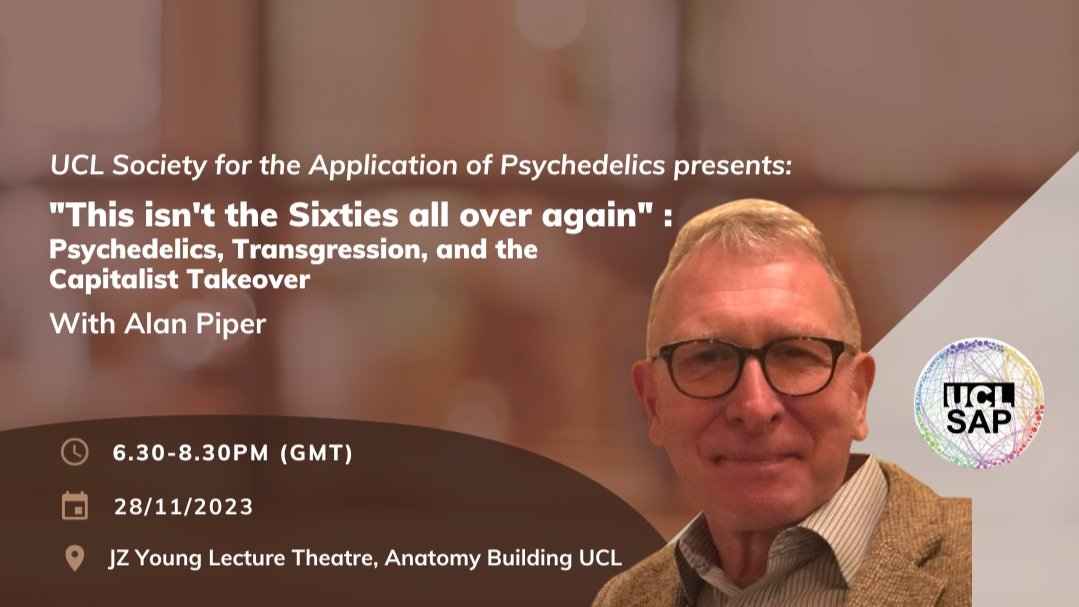
Alan Piper - "This isn't the Sixties all over again" : Psychedelics, Transgression, and the Capitalist Takeover
Historian Alan Piper discusses whether psychedelics, once commodified, will lose their ‘subversive mojo’.

Dr. David Luke - Exploring the anomalous in psychedelic experience, from neurodivergence to the transpersonal.
Join us for an ontologically shocking evening of psychedelic-induced near-death experiences, entity encounters synchronicities and more!
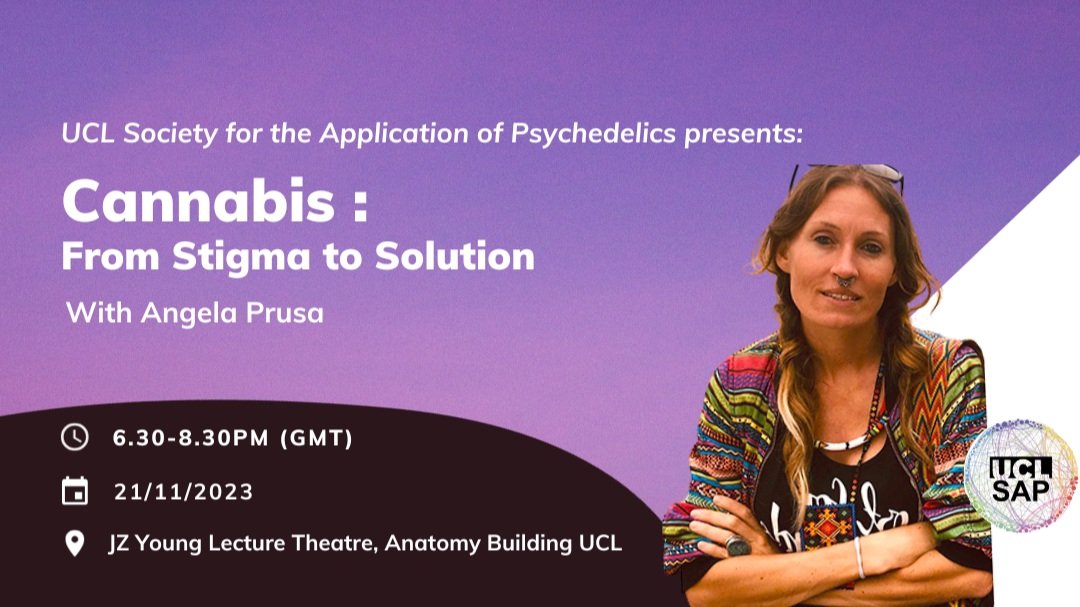
Angela Prusa - Cannabis : from Stigma to Solution
Abstract:
At this present moment, we are a lot of overwhelming issues in our world. How can we use cannabis as one of many sustainable solutions to tackle some of the issues of climate change, poverty, housing, plastics, poisoned soils and water, and our health crisis? I will offer ways on how we can come into right relationships with the cannabis plant and be in sacred reciprocal relationships rather than in an unhealthy and commodified one, and how this can aid in our healing. We will discuss ways to decolonize the plant and rectify the racist laws of prohibition.
Biography:
Angela Prusa has been an advocate for the legalization of cannabis in her home country of Namibia for the past six years, where she founded the Cannabis and Hemp Association of Namibia. She views cannabis as a solution to many of the issues facing communities, such as lack of housing, lack of jobs, and inadequate healthcare, as well as issues such as climate change. She is a cannabinoid practitioner and the co-founder of Roots Herbal, a natural therapeutic cannabis creation that supports hundreds of people with a range of ailments on their health journeys. Angela is a NADA Acupuncture Practitioner for Trauma and Addiction and has set up various projects to support people in vulnerable communities and street-based people with addiction. For Angela, reverence, respect for medicine and Earth, and community support are the foundations of her projects.

Maria Bălăeţ - Cognitive Fingerprints of Psychedelic Drugs
Location:
Anatomy Building, JZ Young Lecture Theatre G29
Medical Sciences and Anatomy Building, Gower Street, London, WC1E 6BT
Zoom Link: https://ucl.zoom.us/j/99342982623
Abstract:
Drawing from the extensive data of the Great British Intelligence Test (GBIT) which recruited more than 500k participants between 2019-2020, we explore the cognitive ramifications of recreational drug use including those of psychedelic use. Notably, a substantial portion (over a quarter) of the initial cohort returned for repeated assessments at six-month intervals over four years, providing a longitudinal dataset. In this design, a range of cognitive abilities such as memory, attention, reasoning, and language were measured at regular intervals with our bespoke cognitive testing platform, the Cognitron. Advanced machine learning techniques were used to perform data-driven clustering based on patterns of drug use, then to offer detailed insights into the cognitive profiles associated with those patterns. The study's structure was designed to reduce self-selection bias characteristic to online surveys, as participants were initially unaware that psychedelic use would be investigated, thus bolstering the ecological validity of the findings. This talk will discuss these results and place them within the broader scientific and public dialogue on psychedelics.
Bio:
Maria Bălăeţ is a computational neuroscientist at Imperial College London, specialising in neurodegeneration, sleep, and recreational drug use, particularly psychedelics. She employs large-scale cognitive testing and AI algorithms to study cognitive variations in individuals with neurological or psychiatric conditions, or who use drugs recreationally. Recently, she led a segment of the Great British Intelligence Test, examining the effects of recreational drug use in the UK, with a particular focus on cognitive and mental health effects. Beyond research, she is an active science communicator, having delivered dozens of lectures across the UK and abroad on psychedelics and harm reduction. For updates follow her on Twitter @emmsskyyy.

Dr Ruben Laukkonen: Insight experiences and the emergence of new beliefs under psychedelics
Insights can be a source of creativity, discovery, and even healing, but they can also mark the beginning of a delusional episode, or potentially entrench and perpetuate false beliefs. The emergence of insights during psychedelics is also remarkably important for therapeutic progress. In this talk, I will review evidence from a series of experiments that expose both the light and the dark side of insight. These findings will be integrated within an active inference account, wherein feelings of insight can give rise to, and entrench, new beliefs and perspectives during psychedelic experiences. Put simply, the combination of intense insights and relaxed beliefs creates the profound potential for plasticity and change. However, this plasticity risks the insight-catalysed lodging of false or maladaptive beliefs. I will ground these ideas by discussing how we might mould a set and setting to improve the probability of adaptive insights.

Daniel Ingram - Meditation, Magick, and the Fire Kasina
Webinar link: https://ucl.zoom.us/j/94324808976
Dr. Daniel M. Ingram, MD MSPH, is a retired emergency medicine physician who works to improve the global relationship of science, clinical practice, mental health, and the public to the phenomena that might be referred to as spiritual, meditative, energetic, mystical, psychedelic, magical, and related phenomena. To those ends, he is currently the founder, philanthropic supporter, and volunteer CEO and Board Chair of the Emergence Benefactors registered charity, and chief organizer and co-founder of the global Emergent Phenomenology Research Consortium. He is currently involved in neurophenomenological research of advanced meditative states with colleagues at Harvard and has been a participant in numerous fMRI and EEG studies of advanced meditators, including at Harvard, Yale, U Mass, and Vanderbilt.
He has published scientific articles in Pediatrics, Child Abuse and Neglect, and the Journal of Medical Toxicology. He is the author of Mastering the Core Teachings of the Buddha, co-author of The Fire Kasina, and co-founder of the Dharma Overground. His work has been featured in The New York Times, Esquire, Vice, Wired, BBC Radio 4, Evolving Dharma, American Dharma: Buddhism Beyond Modernity, Dan Harris’ 10% Happier Podcast, Slate Star Codex Blog, Buddha at the Gas Pump, Meaning of Life TV, Deconstructing Yourself, Spiritual Explained website, Guru Viking, Buddhist Geeks, Cosmic Tortoise, Startup Geometry, Imperfect Buddha Podcast, and many others.
"What many might call “spiritual”, “mystical”, “energetic”, etc. experiences and effects, we refer to as emergent phenomena. We refer to practices designed to lead to emergent phenomena, such as meditation, psychedelics, yoga, prayer, etc., as emergent practices.
As emergent practices continue to scale up in society, our aim is to give health care systems, mental health providers, and those who are helping to teach and promote various practices the information they need in order to make better decisions about how to both promote the benefits of these practices and manage the various effects that they can produce.
The Emergent Phenomenology Research Consortium’s mission is to use ontologically-agnostic, multidisciplinary, first-person, psychometric, neurophenomenological, biochemical, and clinical scientific methods to conduct studies on emergent practices and phenomena to generate clinically-relevant information that can add value to practitioners, patients, clinicians, and healthcare systems.
By finding the skillful overlap of the perspectives of science, spirituality, religion, clinical medicine, and mental health, we can generate outcomes that are as beneficial as possible for all concerned."

Jonas Mago: Jhana meditation: the neuroscience of high arousal contemplation
The calm of mindfulness has become the exemplar for the science of contemplation. The quietude of this secularized version of Buddhism appeals to western scientific affective biases, is relatively accessible to contemporary research methods, and its effects on stress and inflammation seem uncontroversially beneficial. Yet, a focus on low arousal practice has left a large swath of mind-body practice underexplored. Research on psychedelic experience helps fill this gap, but behaviorally induced experiences remain largely unaccounted for. Here we will explore the Neuroscience of Jhana meditation, a Buddhist concentration practice that joins strong emotions (e.g. raptures of joy, pity) and deep calm (i.e. absorption states). While there are many phenomenological similarities between Jhana meditation and the psychedelic state, one major difference is the degree of control that practitioners have over the experience. Based on research with 30 of the worlds most skilled Jhana meditators and inspired by the similarities and differences between the phenomenology and neuroscience of jhana and psychedelics, this talk will explore (A) to what extend different contemplative states of mind are constructed or pure? (B) how complex system inspired metrics can inform the relation between neuronal flexibility and rigidity to wellbeing? and (C) what the neurophysiological and cognitive mechanisms underlying both Jhana meditation and psychedelics can tell us about the possible benefits and challenges of combining these practices?
Jonas Mago:
I am a cognitive neuroscientist and wellbeing aficionado, interested in the cognitive mechanisms underlying human flourishing. My research investigates contemplative practices that aim to bring about wholesome states of mind – from meditation and prayer to collective cultural rituals and psychedelic therapies. I work from an interdisciplinary perspective, combining cognitive, neurobiological, computational, and phenomenological approaches to shed light on mechanisms of self-regulation. I am currently pursuing my doctoral studies in Neuroscience at McGill University,
supervised by Dr. Michael Lifshitz and co-supervised by Prof. Dr. Karl Friston. Previously, I completed a master’s in Mind, Language, and Embodied Cognition at the University of Edinburgh (UK) and undergraduate studies in Liberal Arts and Sciences at the University College Maastricht (Netherlands).
I’m grateful to be supported by the German Academic Scholarship Foundation, Mind and Life Europe, and the USONA institute.

Kinda Studios: Art and Neuroscience
*Due to room bookings, this event is for UCL students and staff only*
Visit the Kinda Studios website.
“We translate neuroscience into a range of executions, providing an evidence base to guide creative designs and directions. This helps underpin products, services, experiences and ideas with cutting-edge science to drive meaningful impact and behaviour change.
By working with the science of the brain and body, we can reshape designs to provide new ways to experience wellbeing, connection and engagement.
Our work is driven by science which underpins the three lenses of connection:
To self: Mental, Emotional & Physiological Health
To others: Empathy, Synchrony & Collective Experience
To environments: Built & Natural Landscapes
By creating an evidence-based foundation, we help tackle the widespread issue of disconnection and support everything from sleep to sustainability, anxiety to creativity and collective action to individual change.”
Robyn Landau
In an exploration of the connected body, Robyn’s expertise in Neuroaesthetics uncovers how our experience of the world around us impacts our states of being. Her approach integrates a career in the music industry, somatic practise, science and communications to build practical tools and creative applications to help enhance experiences of the everyday. She believes creativity is a fundamental component of life, and accessible to all. As a ceramicist, yoga practitioner and dancer, she fuses these organic and energetic schools of thought with tangible science for greater access and impact.
Katherine Templar Lewis
Connecting and enabling cross-disciplinary collaborations and insight, Katherine is an interdisciplinary mind, an experienced knowledge broker and reality hacker. With an extensive academic background in genetics, experimental psychology and neuroscience she now sits at the intersection of technology, science and culture. Her passion is translating cutting edge science insight into creative intelligence, accelerating it out of labs and into the real world through artistic and creative collaborations that help us better understand ourselves, our world, drive connection and inspire change.

Balázs Szigeti - Placebo effects in psychedelic micro- and macrodosing
In person at UCL - 26 Bedford Way, Room 448
Zoom link: https://ucl.zoom.us/j/94324808976
Microdosing is the practice of regularly using low doses of psychedelic drugs. We developed ‘self-blinding’, a novel paradigm where voluntary citizen scientists implement their own placebo control without clinical supervision. Using this method, we conducted one of the largest placebo-controlled trial on psychedelics to-date (n=191). Small, but significant microdose-placebo differences were observed, however the trial suffered from weak blinding. To incorporate low blinding quality into the interpretation of trial results, we developed a novel analytical technique, the Correct Guess Rate Curve (CGRC), that can estimate what would be the outcome of a perfectly blinded trial based on data from an imperfectly blinded trial. The application CGRC argues that the observed placebo-microdose differences are likely to be false positives created by weak blinding. Beyond its implications for microdosing, these results suggest that placebo-controlled studies that do not assess blinding quality are more fallible than conventionally assumed.
Placebo effects are also influencing psychedelic assisted therapy, i.e. macrodoing; however in this case blinding is near impossible due to conspicuous drug effects. To estimate the effect of positive expectancy, we analyzed the relationship between pre-treatment expectancy and therapeutic outcomes from the recent psilocybin vs. escitalopram trial. In the escitalopram arm increased expectations were associated with improved outcomes, but surprisingly the same association was not found in the psilocybin arm. The inverse relationship was found with respect to suggestibility: increased suggestibility was associated with better outcomes in the psilocybin arm, but not in the escitalopram arm. Lastly, the implications of these results for psychedelic medicine and future research directions will be discussed.
Balázs Szigeti:
Balázs has a physics degree from Imperial College and earned a PhD in computational neuroscience from the University of Edinburgh. After graduating, he spent a few years as a biomedical software engineer at the Icahn Institute of Genetics in New York. He became involved with psychedelics science in 2016, when he invented 'self-blinding', a novel methodology that enables self-experimenters to implement their own placebo control without clinical supervision. Using this methodology, Balázs lead the self-blinding microdose study, the largest placebo-controlled study on psychedelics microdosing to-date. Balázs continues to look at the interaction of placebo and expectancy effects in psychedelics, both micro- and microdosing, using innovative experimental designs and modern data science techniques.

Matt Wall - Psychedelics, depression, emotion, and music: Explorations with pharmacological fMRI
Online Zoom Link: https://ucl.zoom.us/j/94324808976
One of the most common side effects of standard anti-depressant treatments (i.e. SSRIs) is emotional blunting. Conversely, evidence from psychedelic depression trials suggest that patients may experience an increase in emotional responsiveness. This talk will present some recent data from the Imperial psilocybin/depression trials which look at the neural correlates of these effects, using emotion and music stimuli.
Matt Wall:
Matthew Wall is a Senior Imaging Scientist at Invicro LLC, and an honorary Senior Lecturer at Imperial College London. His work focuses on the application of neuroimaging (particularly fMRI) in neuropsychopharmacology and translational drug development. He has specific interests in work with psychedelics, cannabis, sex hormones, and in developing and improving neuroimaging methodology.

*POSTPONED* Timmy Davis - The horror of suggestion from Mesmer to the psychedelic renaissance.
*POSTPONED*
Who's Psyche is it Anyway? - The horror of suggestion from Mesmer to the psychedelic renaissance.
Location: Cruciform Building - B404 LT2 Gower Street London WC1E 6BT
In 1956 Humphrey Osmond coined the neologism 'psychedelic' to collect together a set of compounds with a seemingly consistent set of effects, the revelation of the psyche. In this talk I will subvert the usual assumptions about the nature of what is revealed after their ingestion. I will put forward the argument that rather than revealing the contents of an individual's 'personal unconscious' what is revealed is the illusion of a stable monadic self. The self (or ego) is revealed to be a phantom. The self is revealed to be porous, or, more radically, diffuse and ephemeral. By positing mimesis (a janus faced concept consisting of imitation-suggestion) as fundamental to the psyche, I will, in other words, argue that what is often revealed by the ingestion of a psychedelic is the affirmation of the subject's fundamental participation in inter-individual affectivity over and above any form of antecedent psychological individuality.
Looking to the history of the study of psychological healing since the dawn of 'psychotherapy' with Franz Anton Mesmer in the 1780s, I will show how the implications of the revelation of the self as a phantom are potentially so disruptive that it has been and continues to be vehemently and ubiquitously defended against. Psychiatric discourse, by taking western medicine as its mode, has naturalised the subject as a stable monadic self defined by the limits of the body's skin. Despite this the spectre of (imitation-)suggestion haunts modern clinical research to this day, with serious implications for psychiatry, and in particular the ethics and practice of psychedelic-assisted psychotherapy.
I will argue that due to some aspects of the participants subjective reports (for example ego-dissolution) and the importance of extra pharmacological factors in shaping the experiences precipitated by psychedelics, these substances threaten the conception of the subject as a stable monadic self and reveal the limitations of Double Blind Randomised Controlled Trials (disrupting contemporary psychiatric discourse altogether). As such, clinical research into these substances necessitates a conception of the subject (such as the one provided), and interdisciplinary research methods, unbound by the limitations of discourses predicated on the notion of a stable monadic self.
These ideas will be explored with reference to Gothic horror including Mary Shelley's Frankenstein (1818), Bram Stoker's Dracula (1897) and The Strange Case of Dr Jekyll and Mr Hyde (1886) by Robert Louis Stevenson, as well as Mimi Cave's 2022 directorial debut Fresh.
Timmy Davis
Timmy Davis is a trainee at the SITE for Contemporary Psychoanalysis and the Psilocybin Rescheduling Project manager at the Conservative Drug Policy Reform Group. He is a contributing member of Drug Science's Medical Psychedelics Working Group and a guide on the psilocybin for treatment resistant depression trials at Kings College London, as well as a welfare and harm reduction manager at music festivals in the UK and a team leader for Kosmicare at Boom festival. He graduated from Birkbeck College, University of London with an MA in Psychoanalytic Studies and with a BA Hons in Philosophy and Religion from the university of Kent, where he was president of the UKC Psychedelic Society for three years.
He co-authored a chapter entitled The Feminine Enshadowed: the Role of Psychedelics in Deconstructing the Gender Binary with Cameron Adams PhD in the book Psychedelic Mysteries of the Feminine (2019) and The Medical Use of Psilocybin - Reducing Restrictions on Research and Treatment (2020) as well as authoring New, Strange, Odd and Weird Perceptions - A Lacanian Approach to Psychedelic Experience (2020) and THOU ART NOT THAT - Towards a Psychoanalytic Understanding of the Bad Trip (2022).
Timmy organises and chairs the Psychoanalysis and Psychedelics event series for the Maudsley Psychedelic Society, as well as regularly speaking on the topic.












